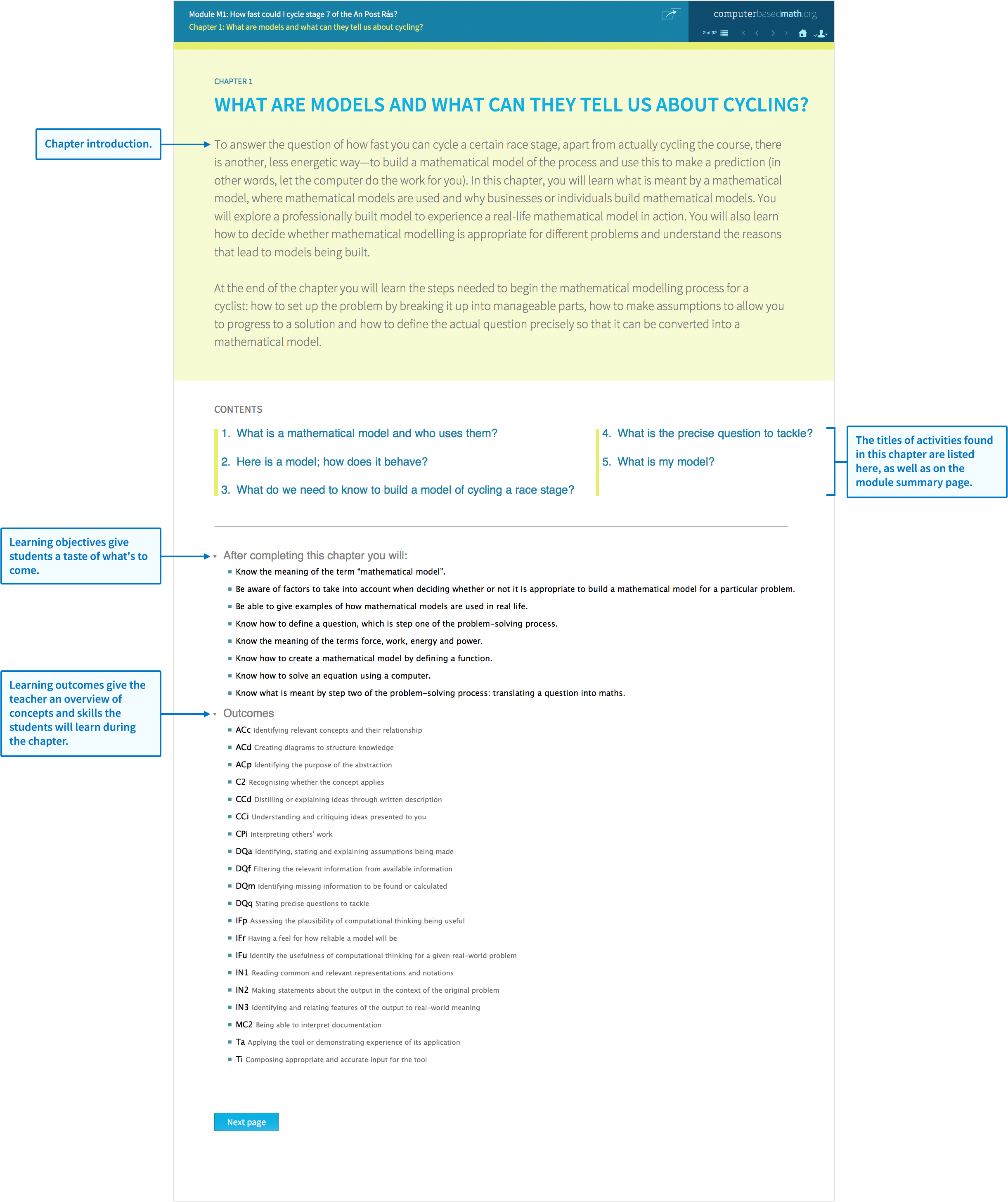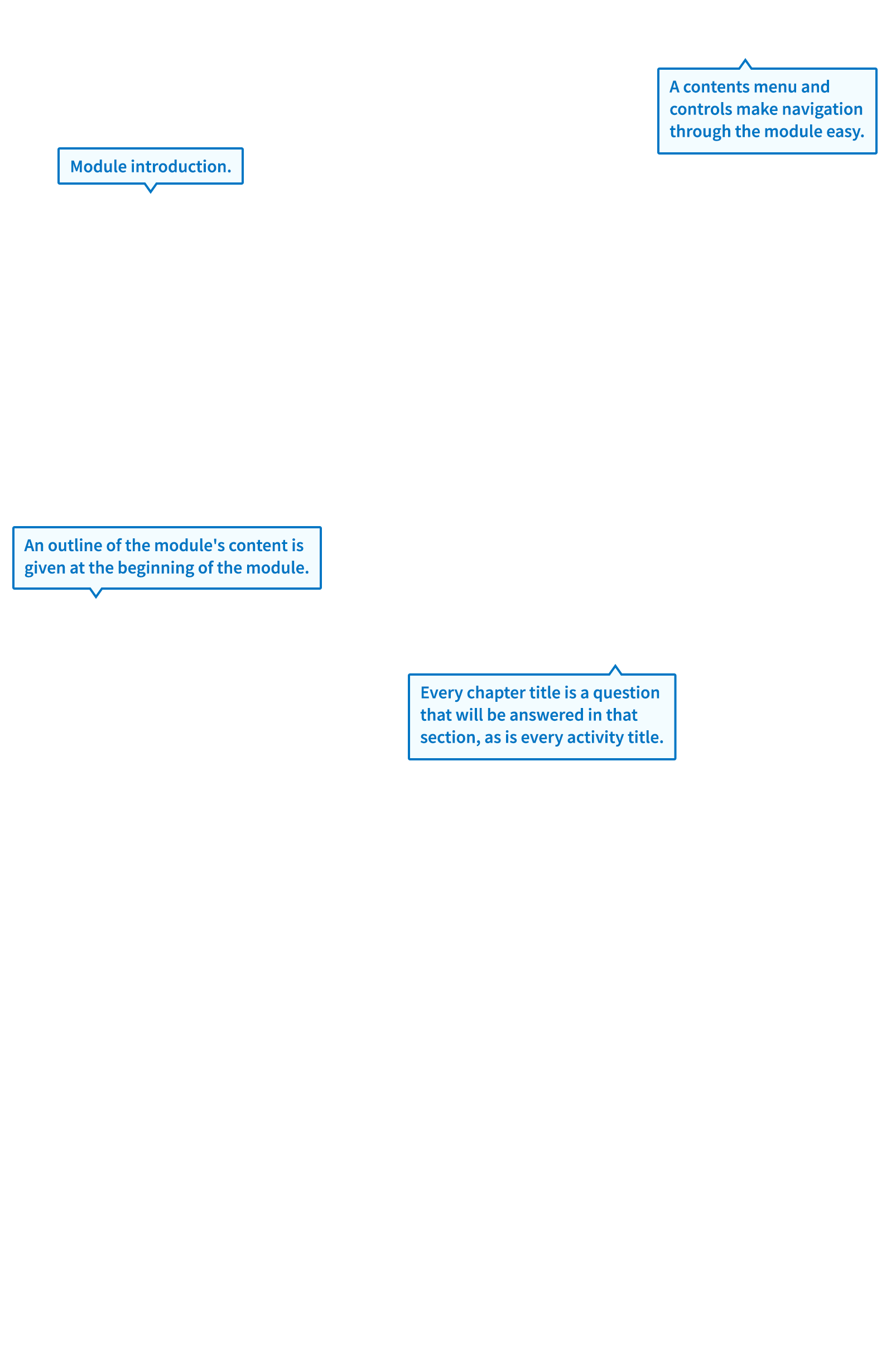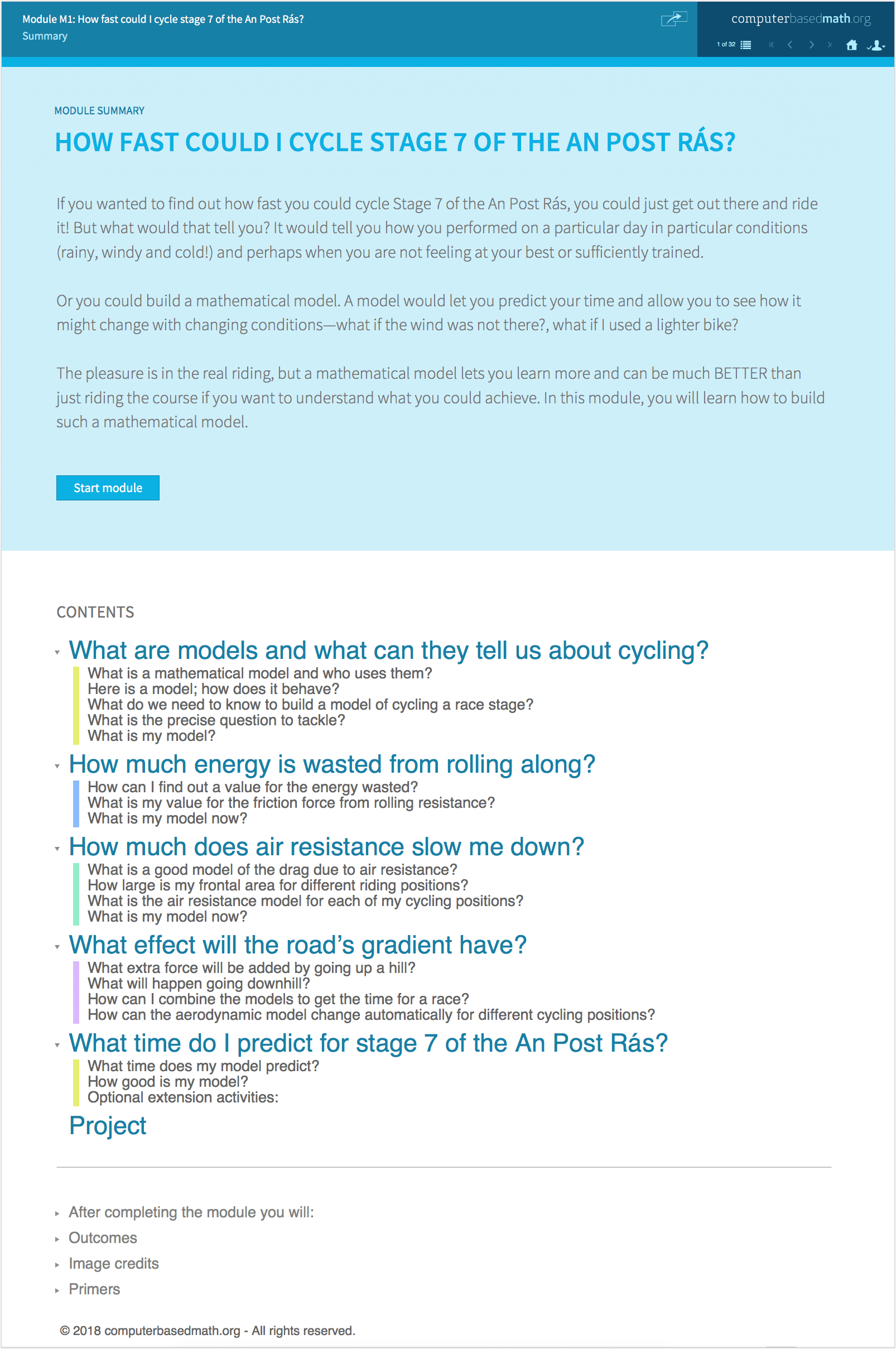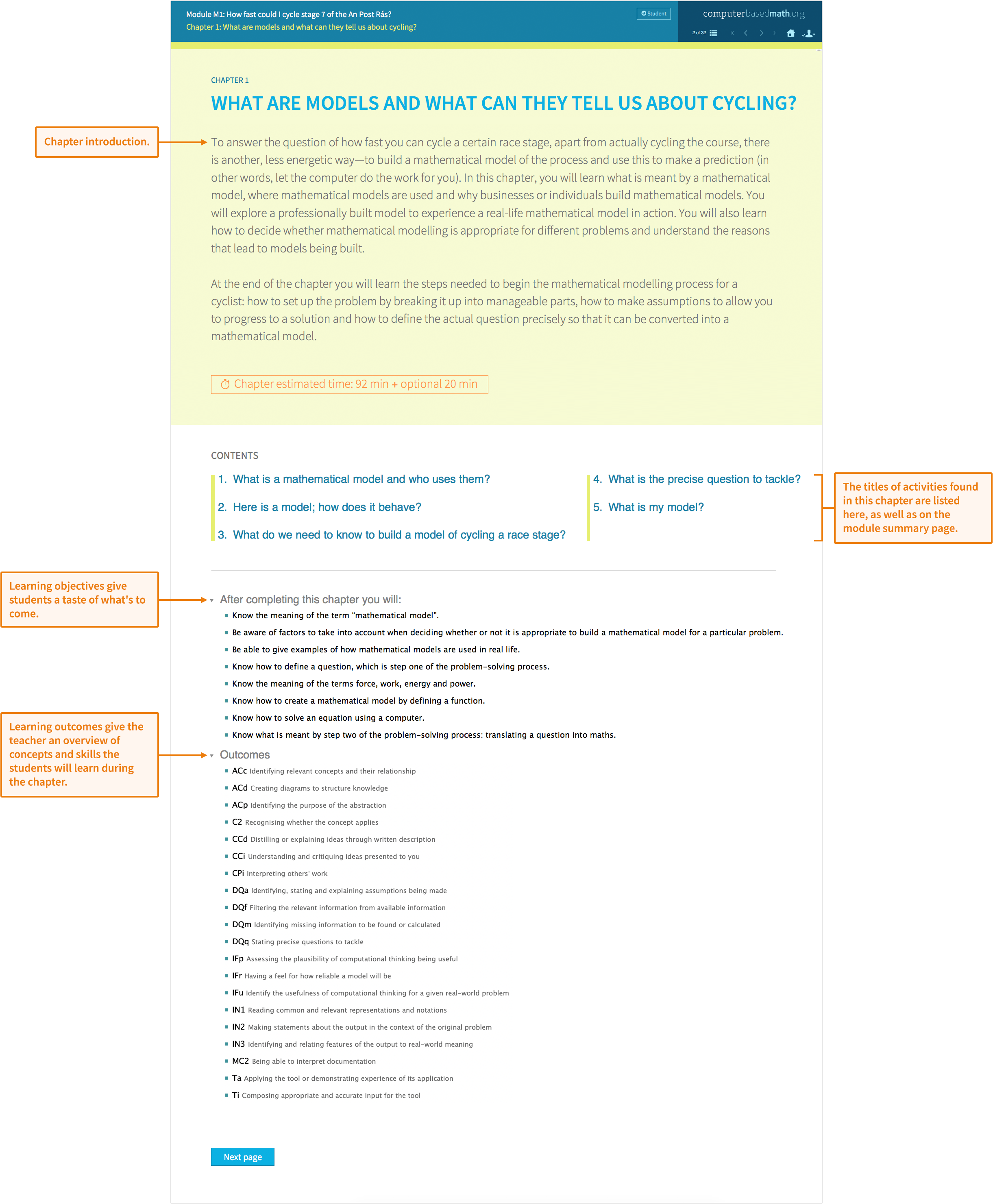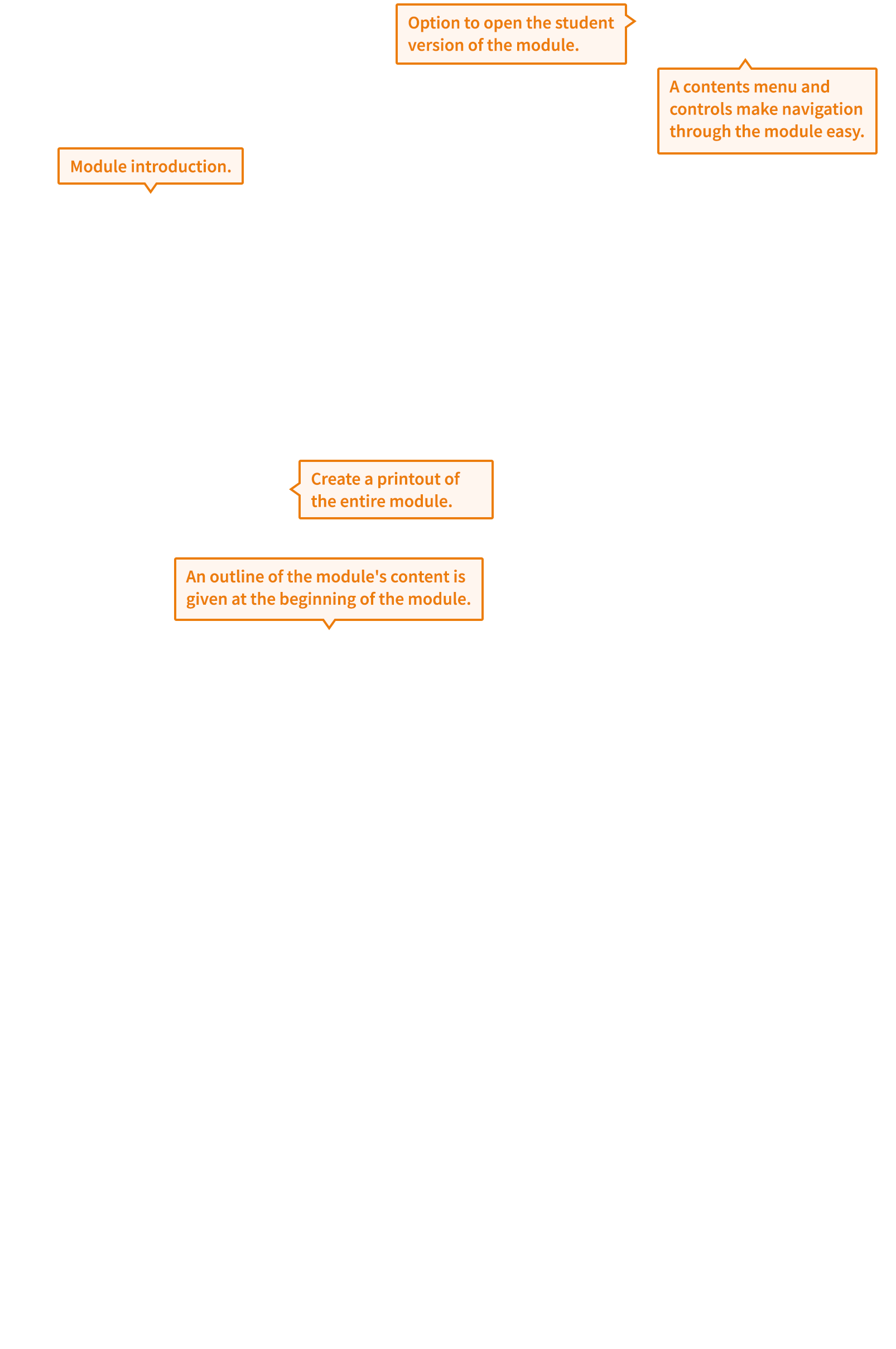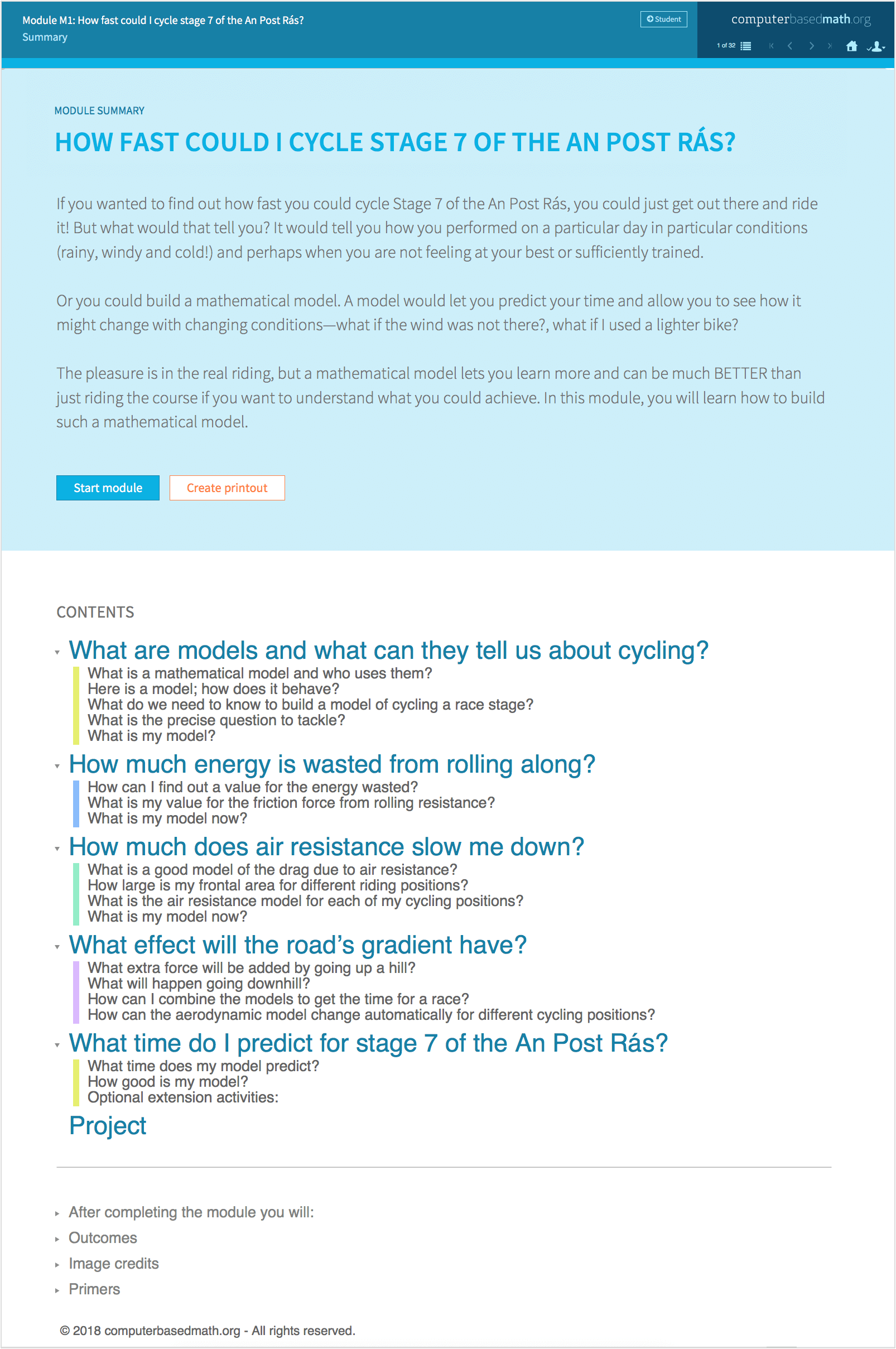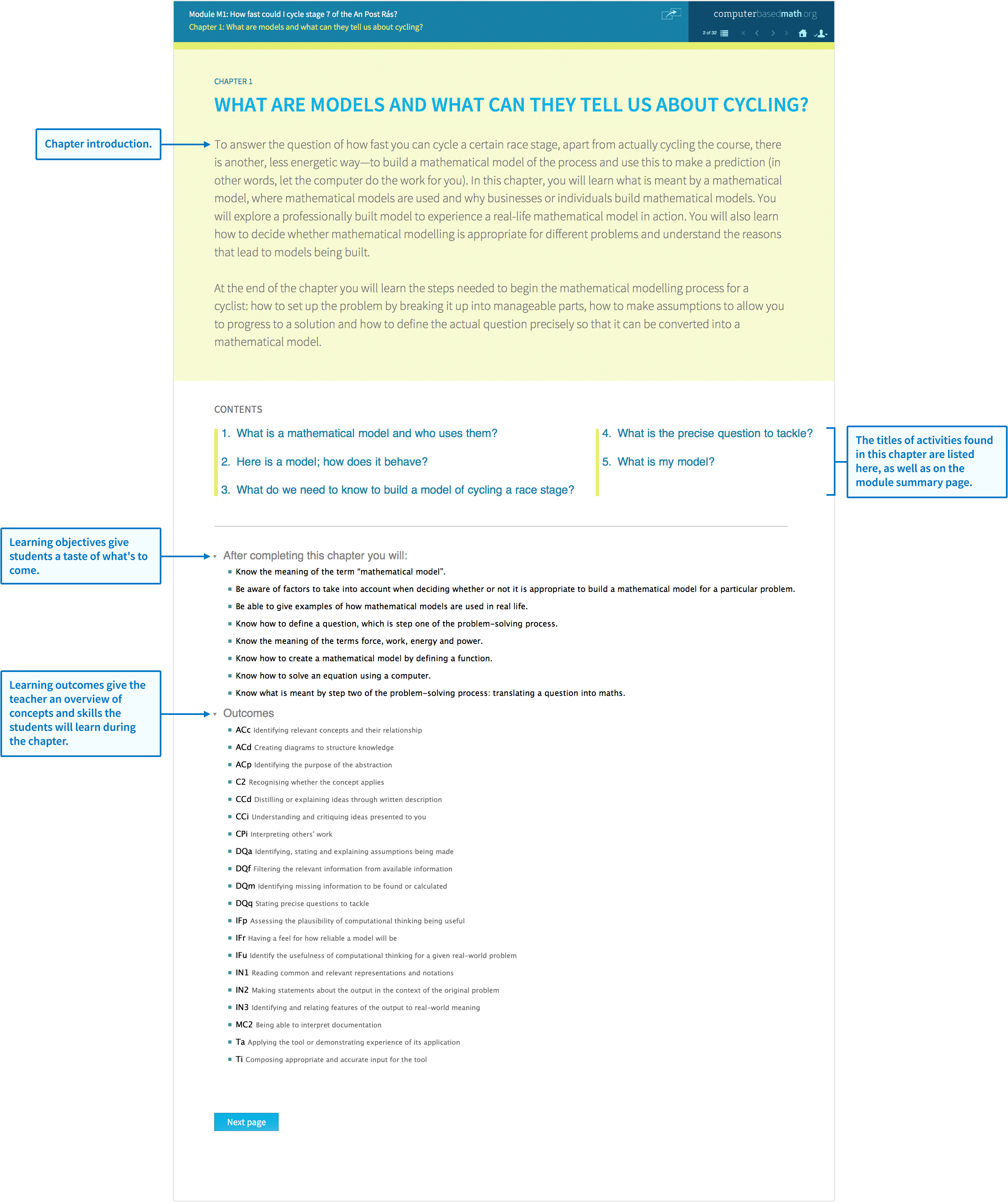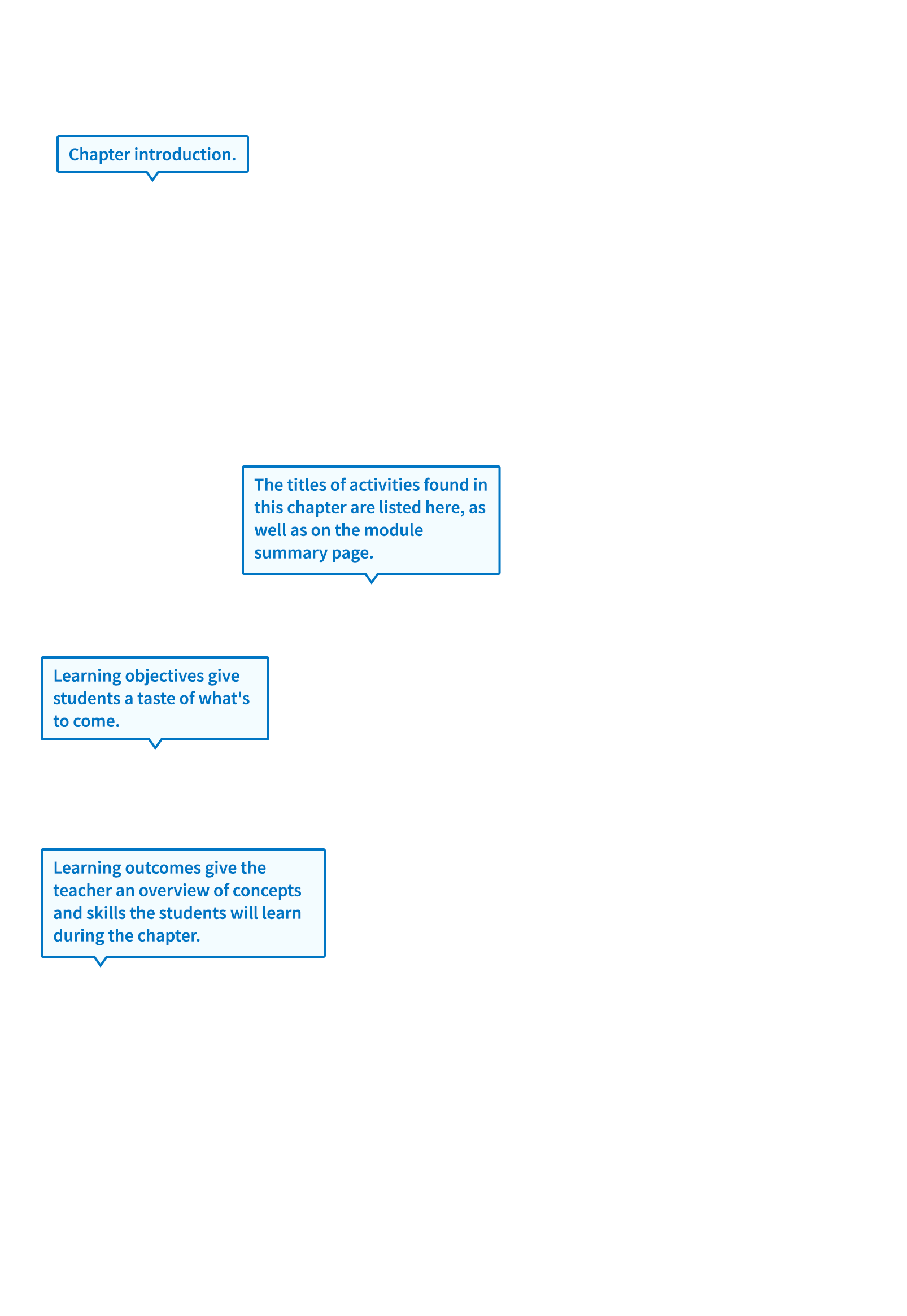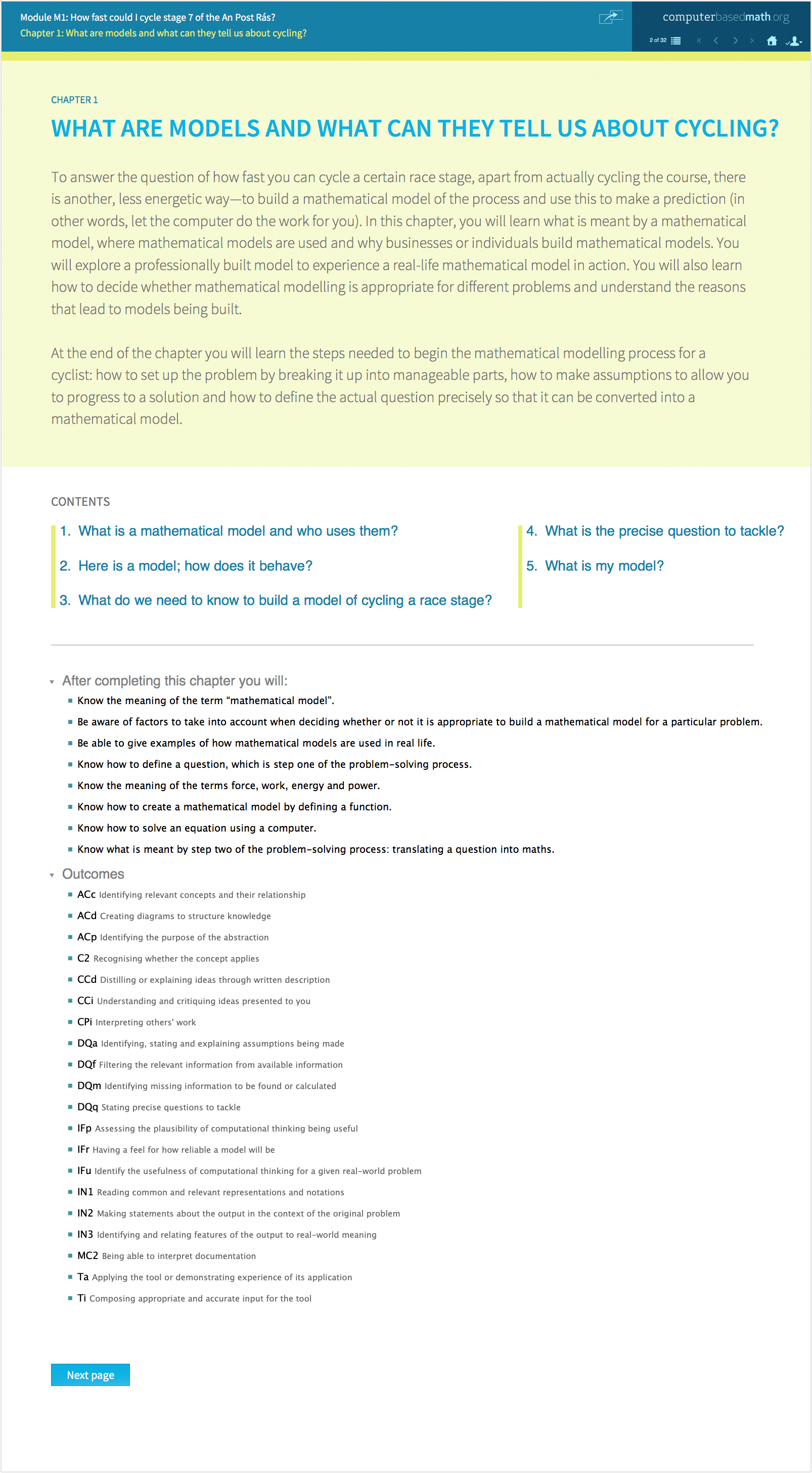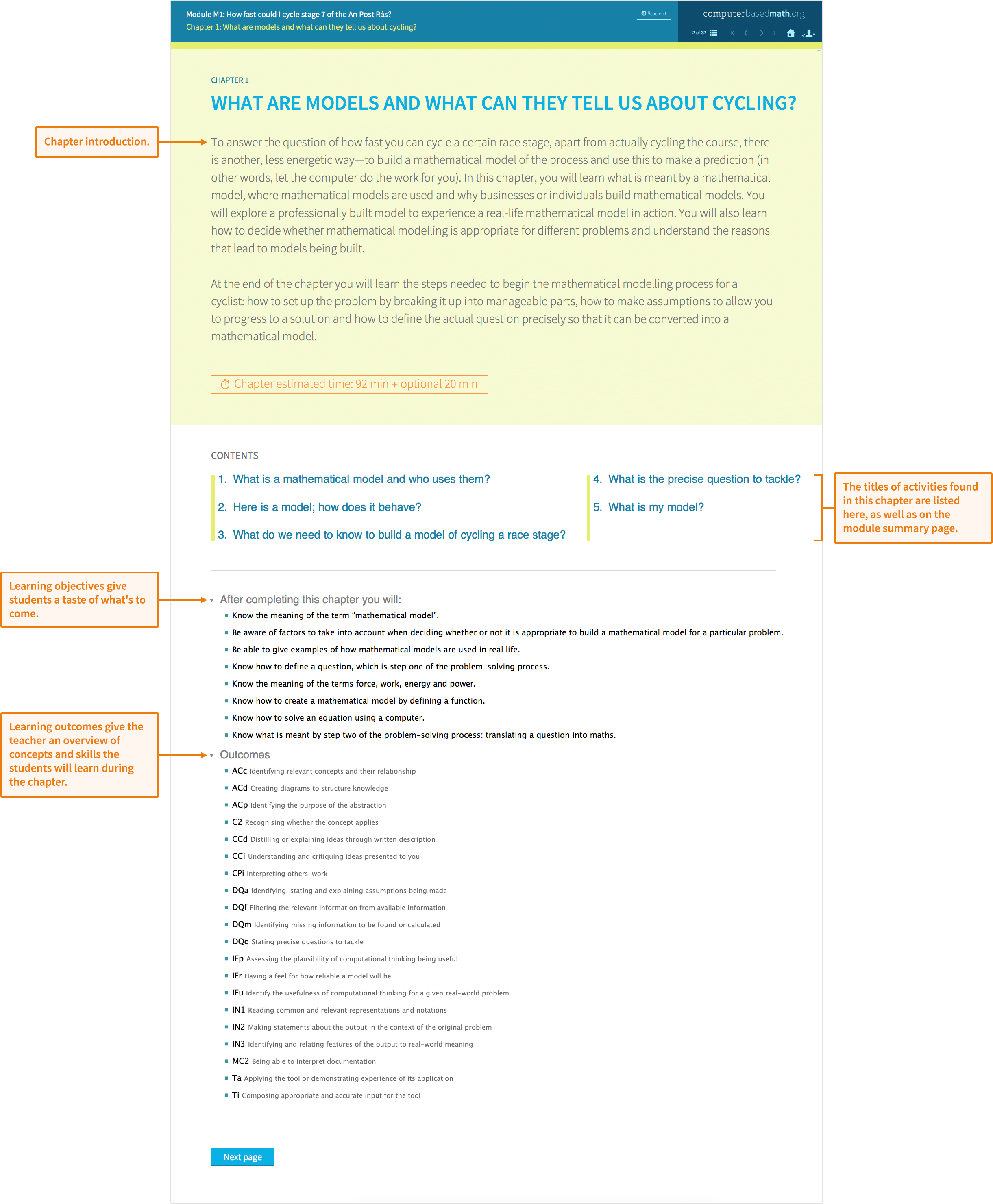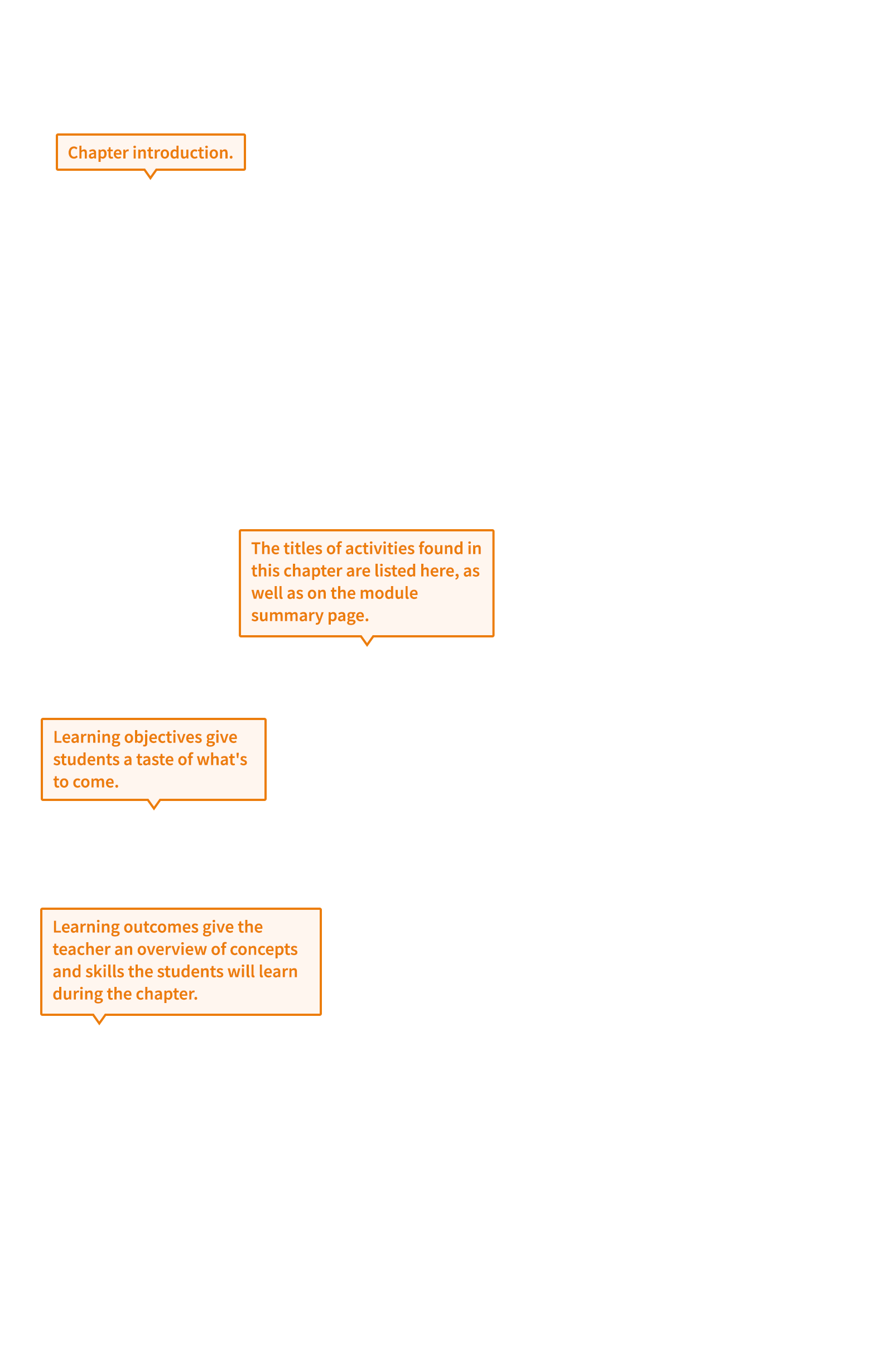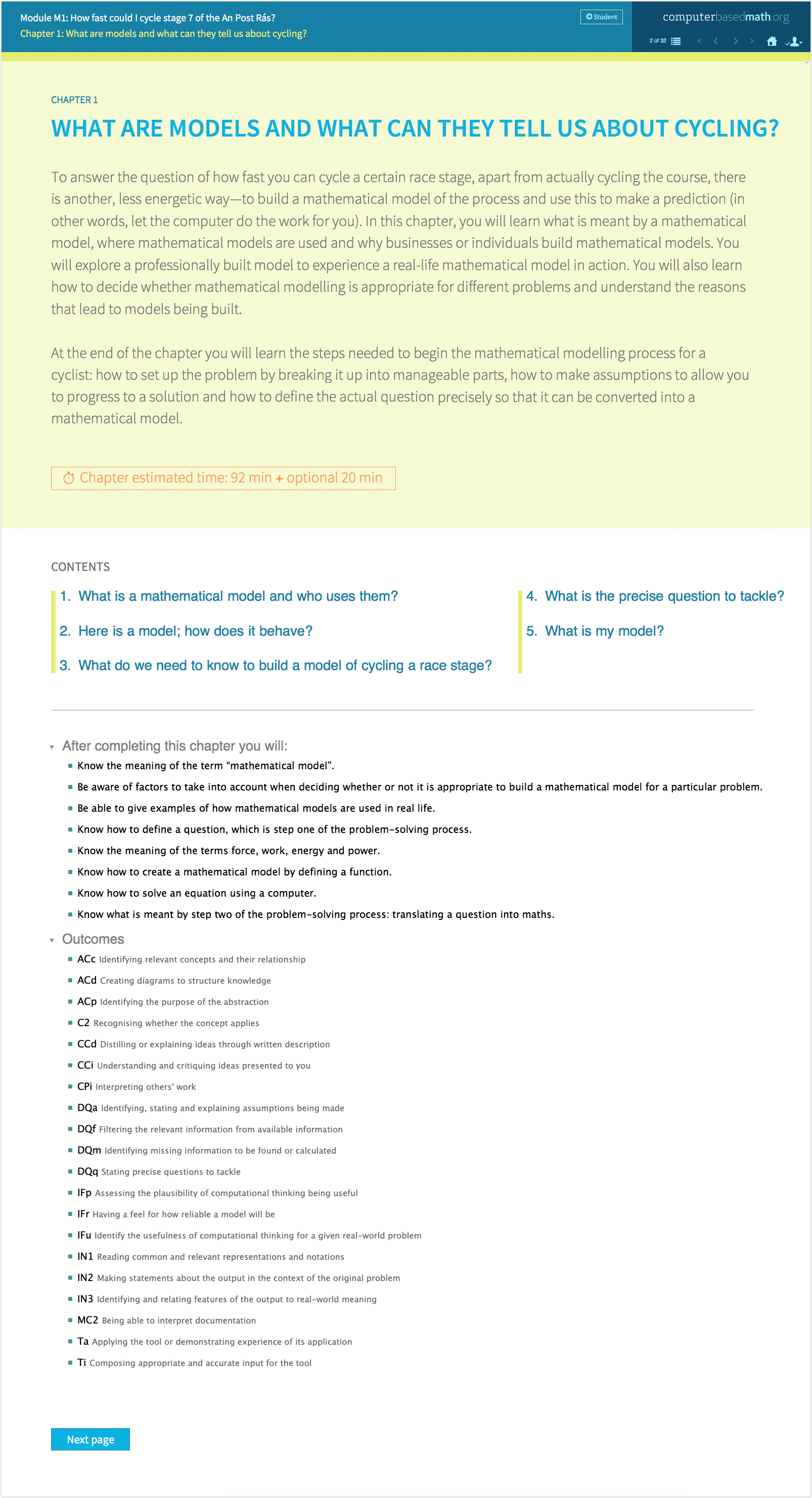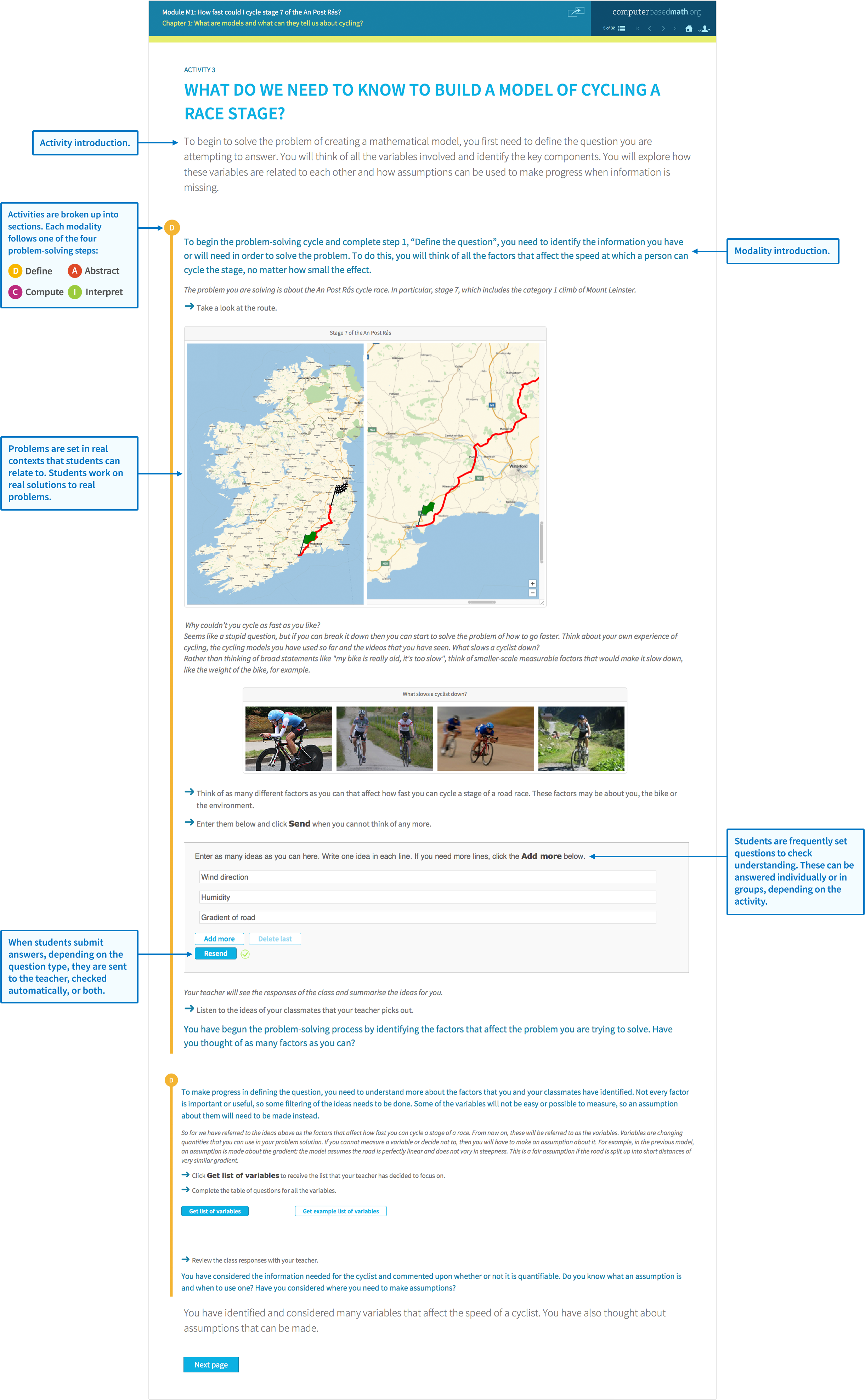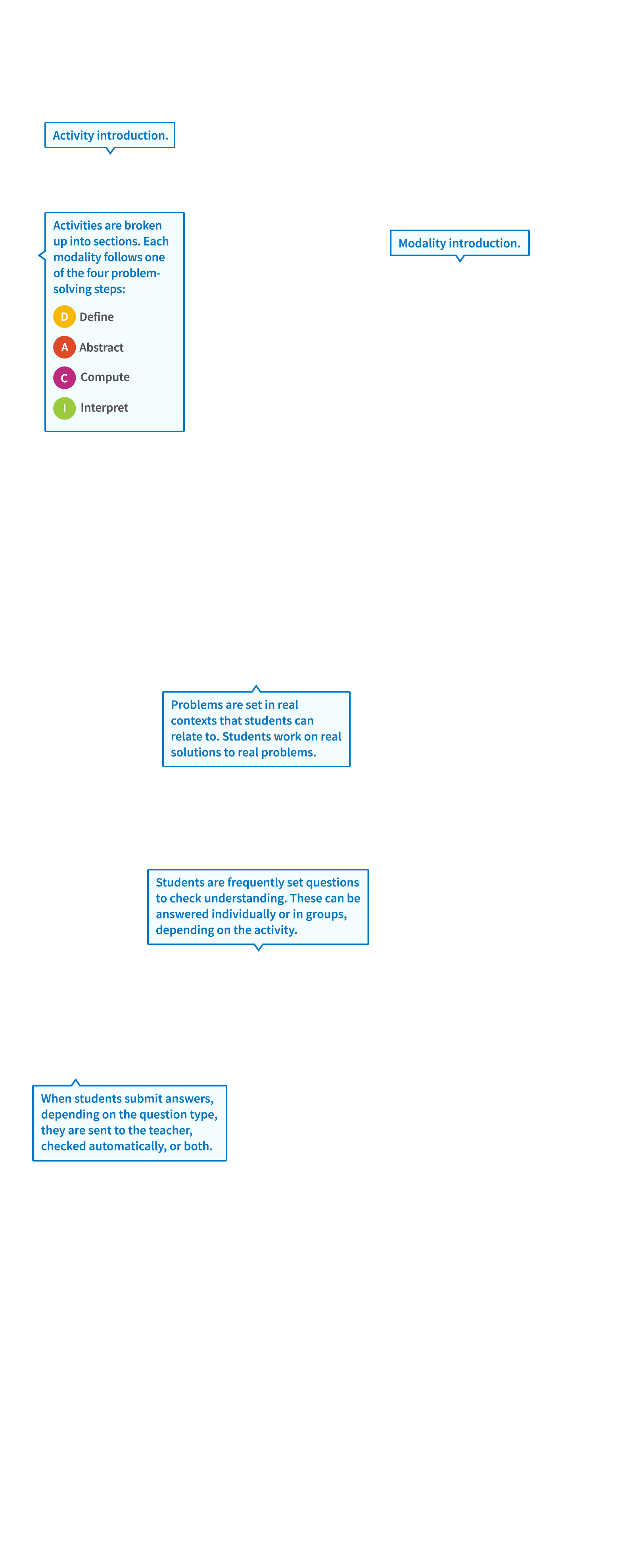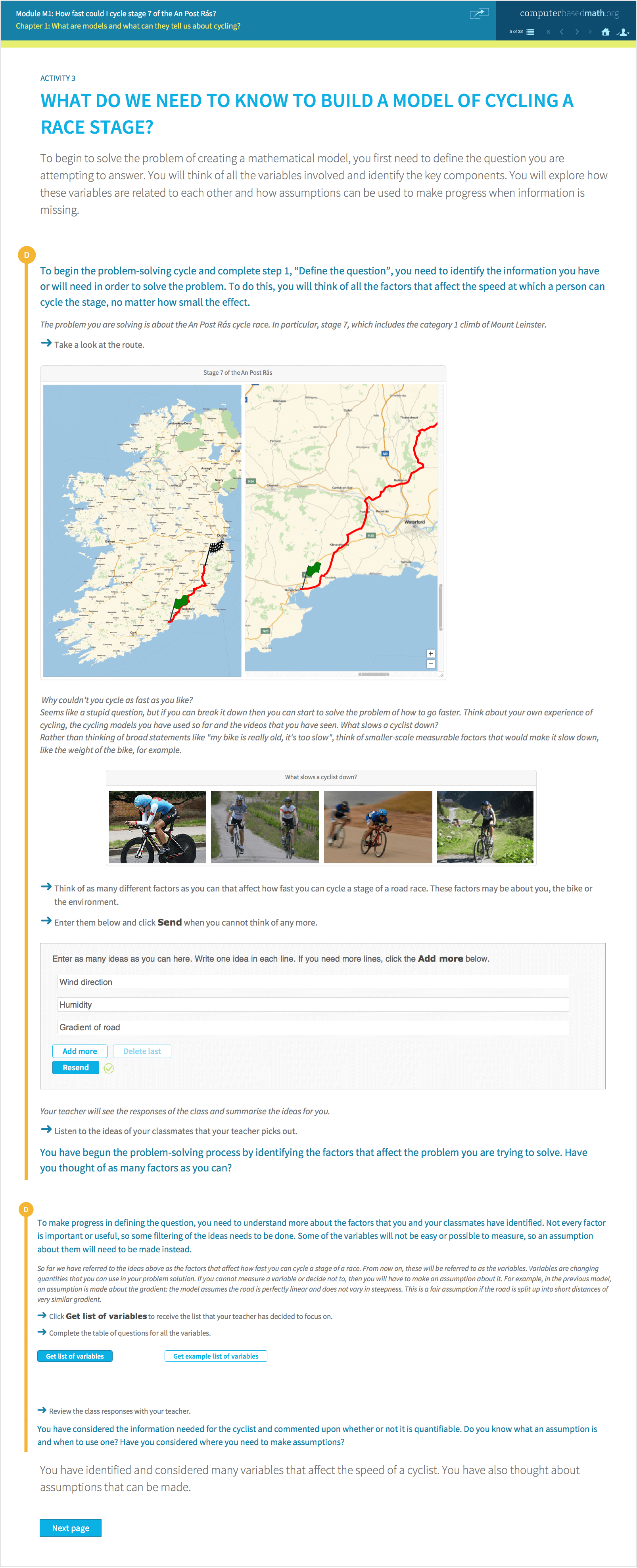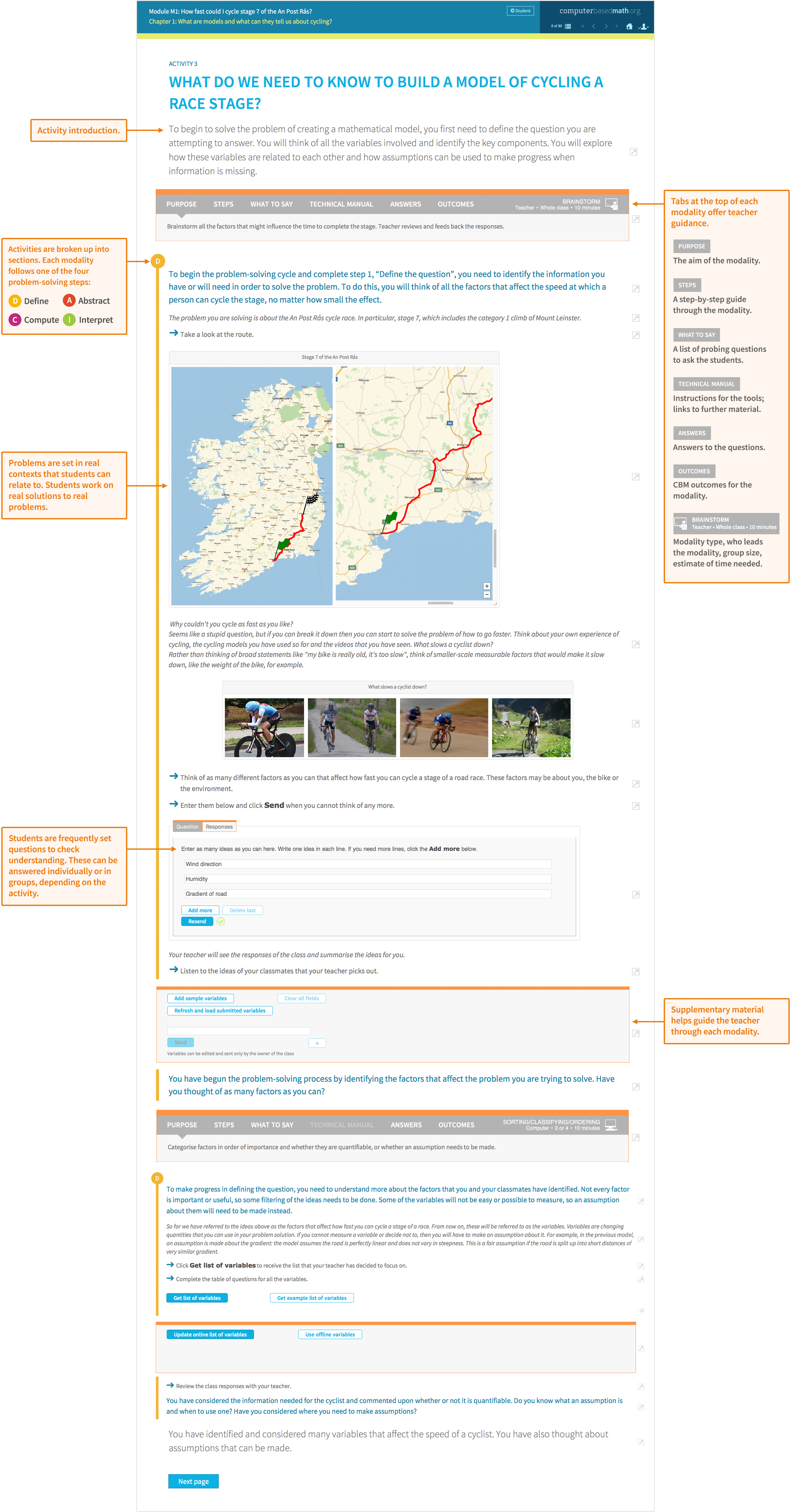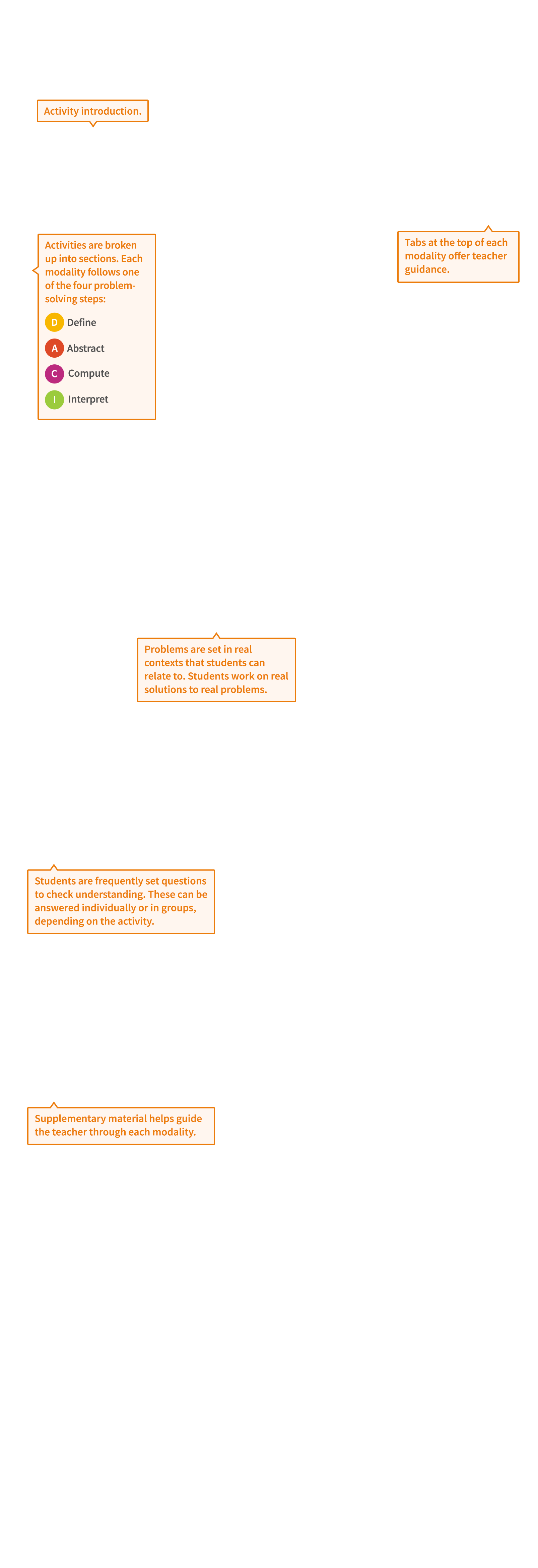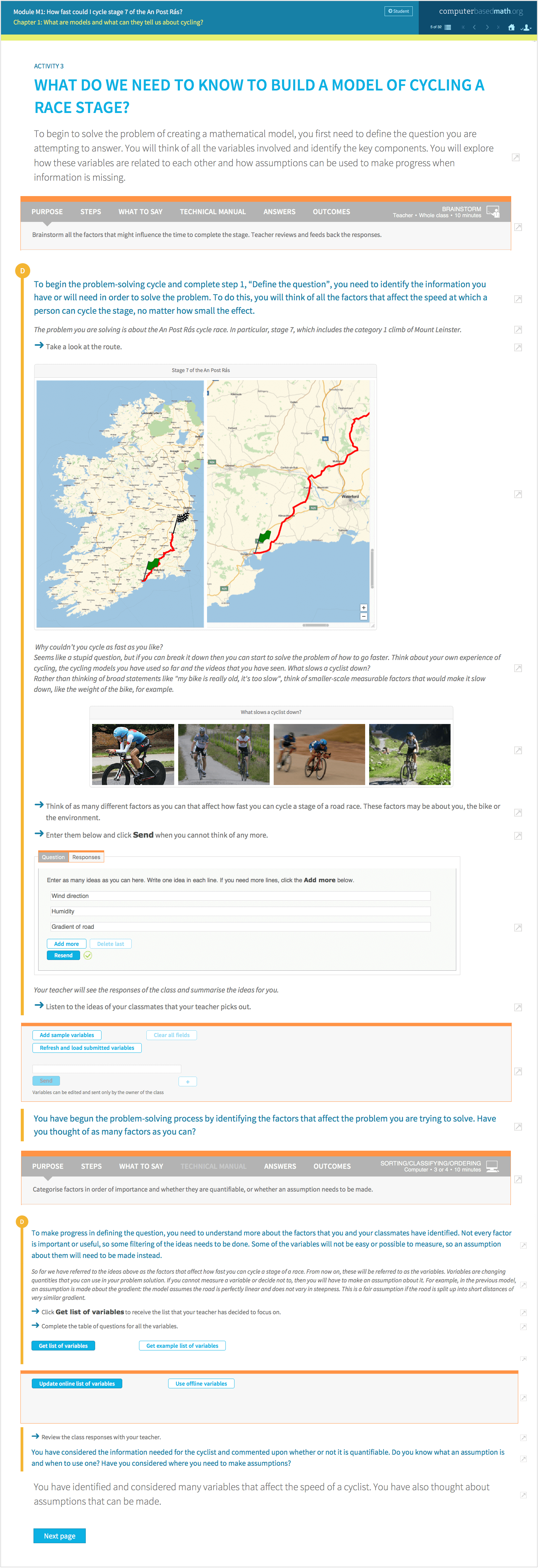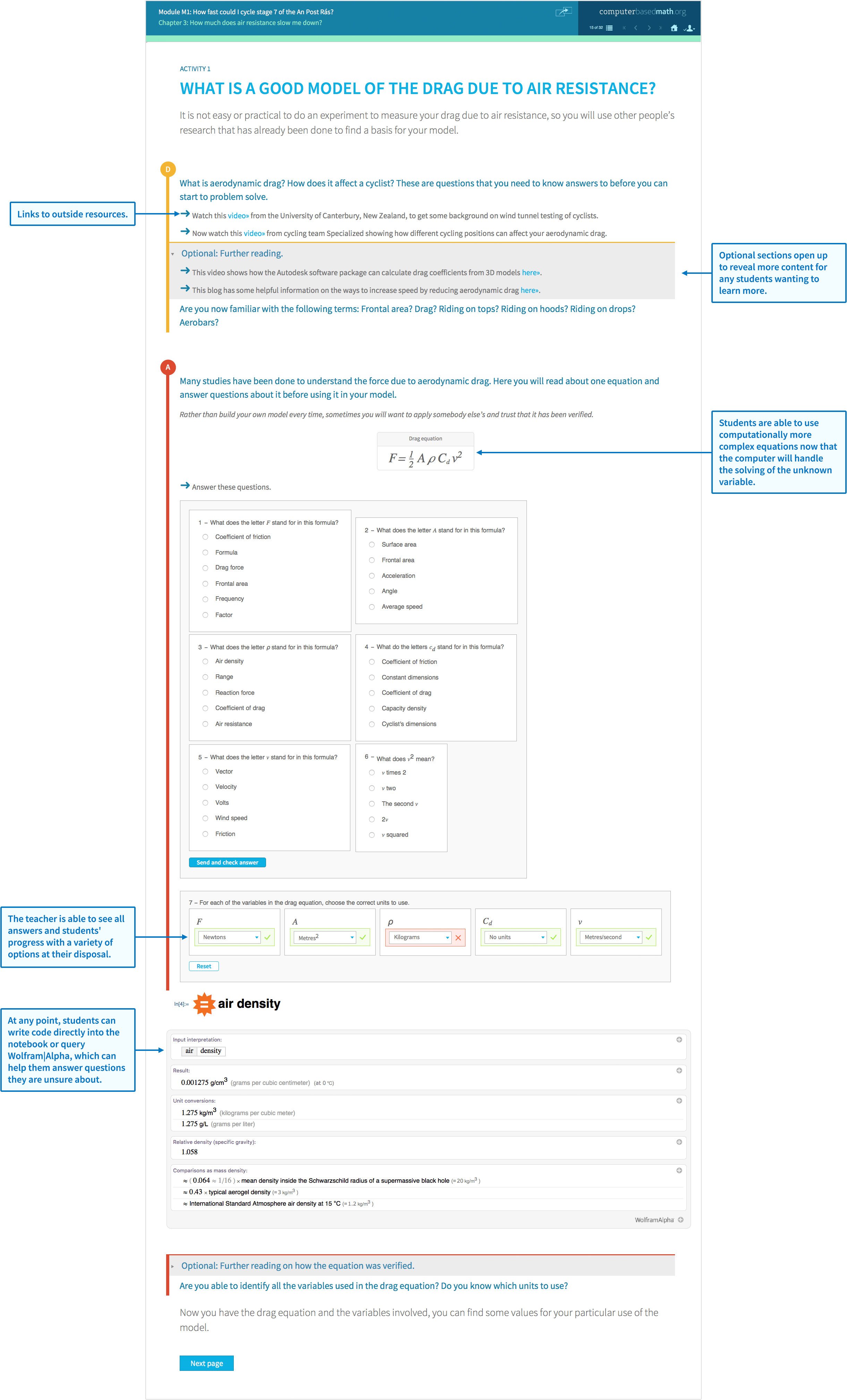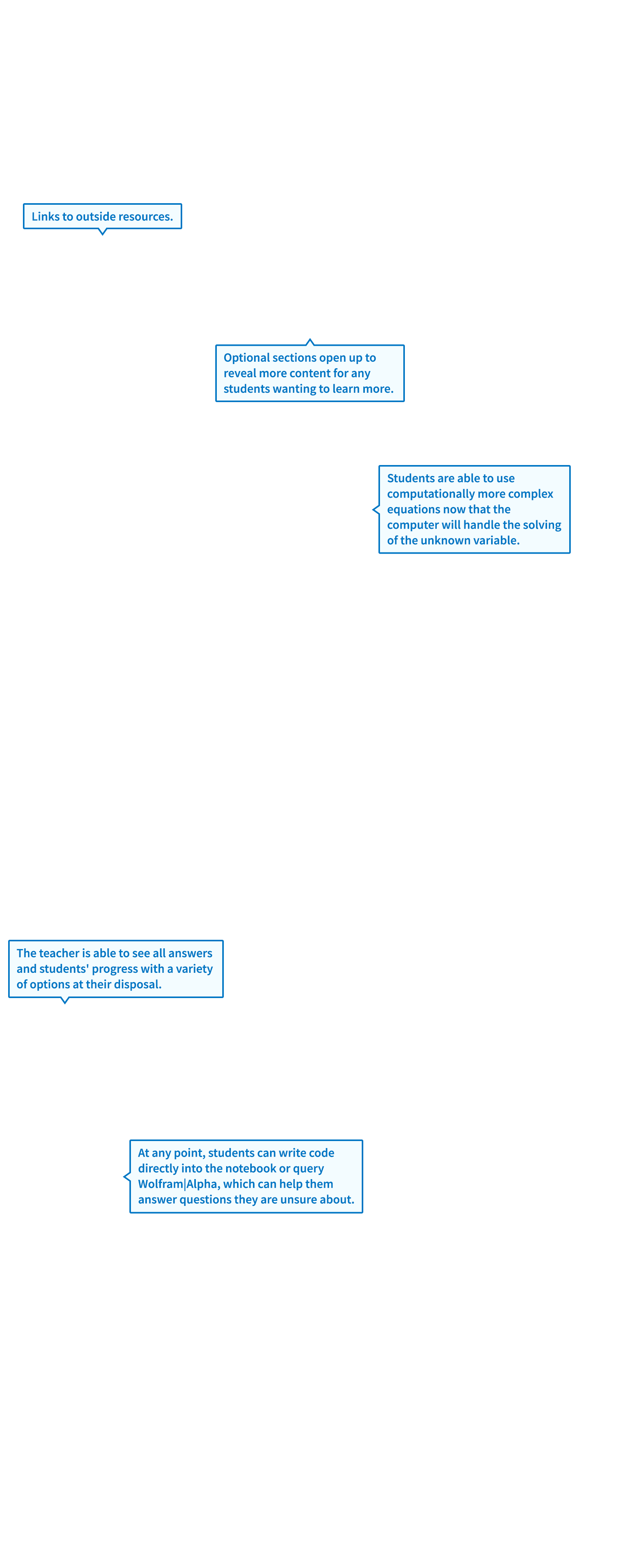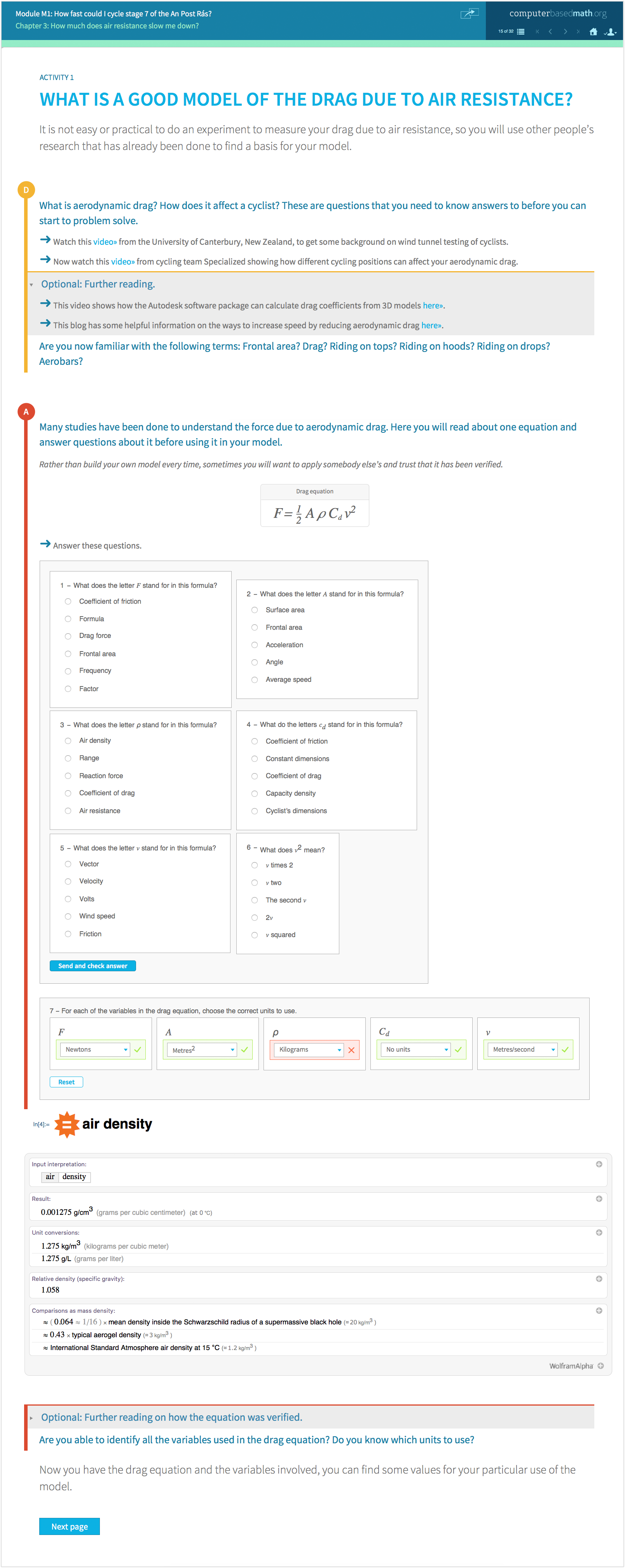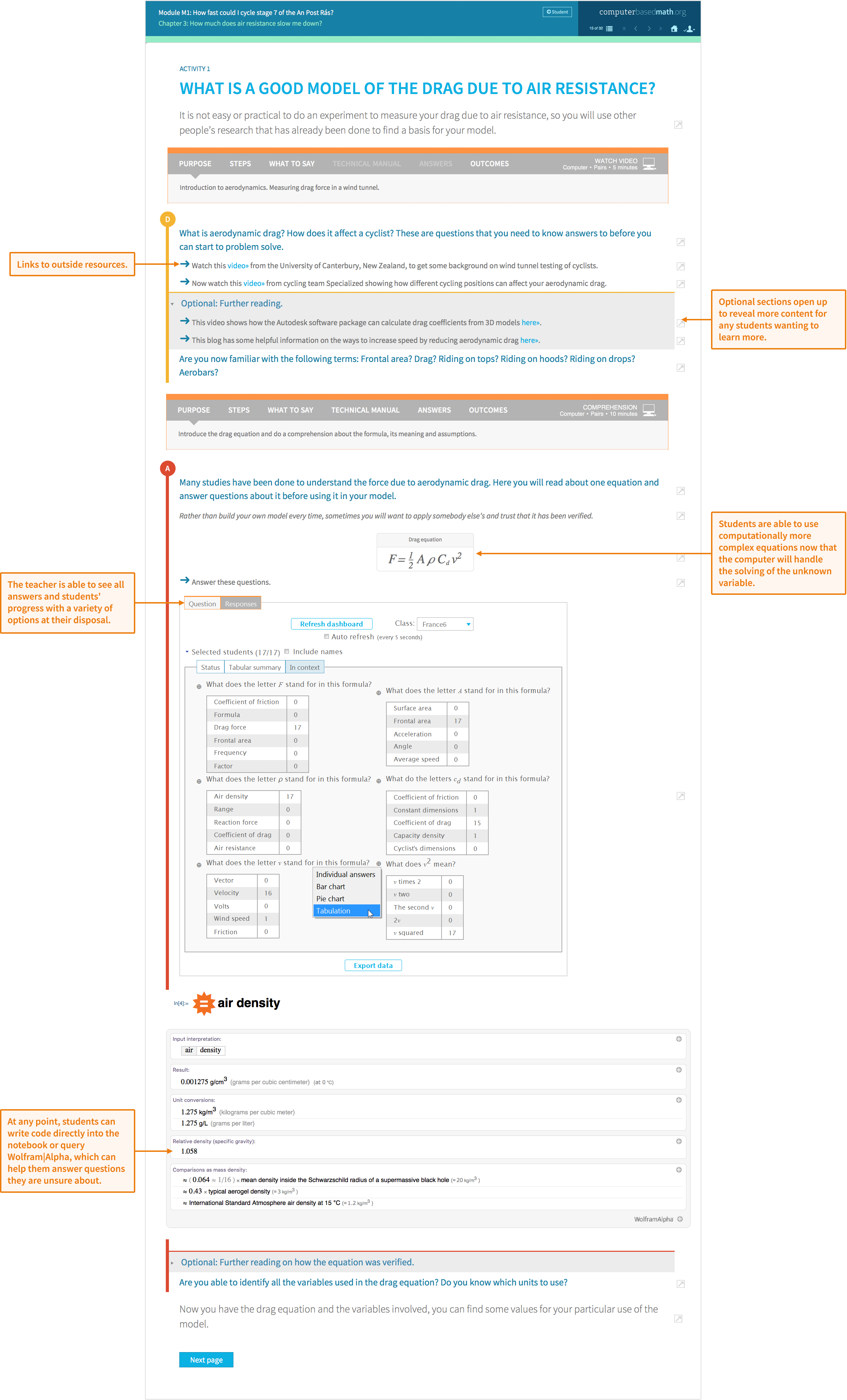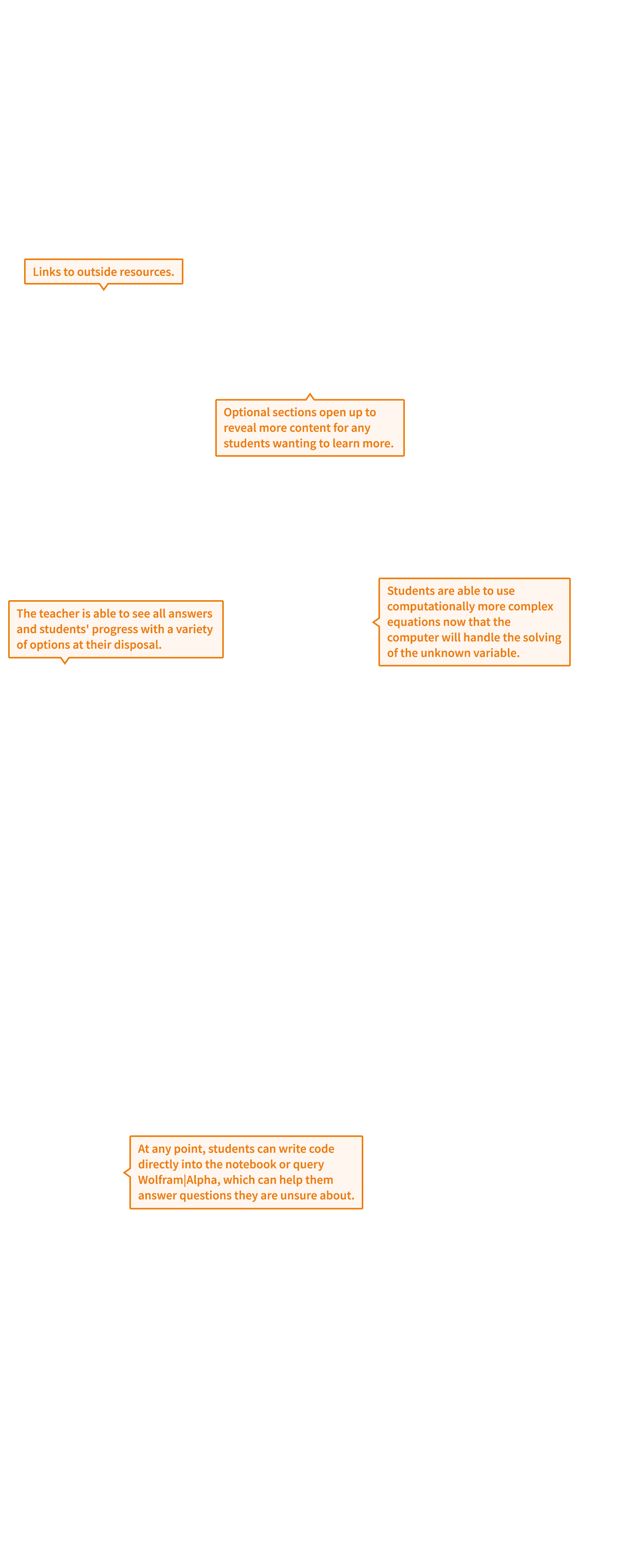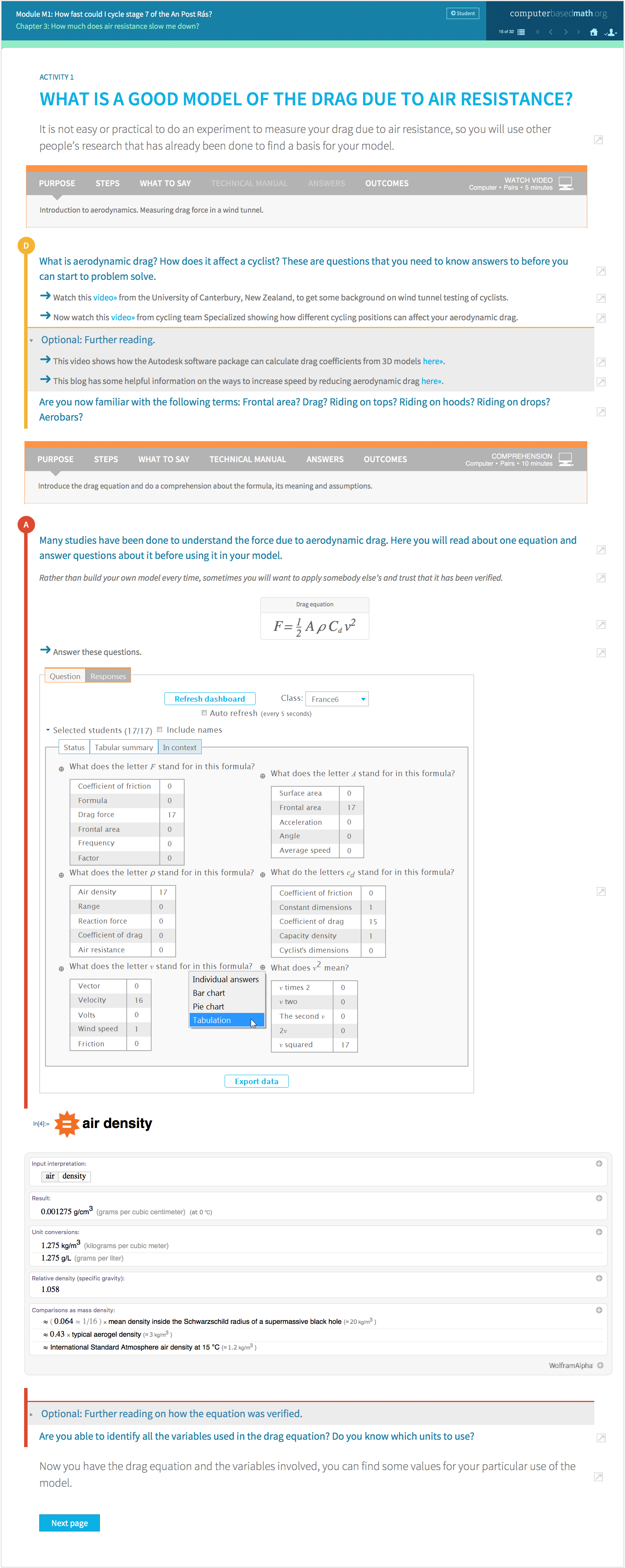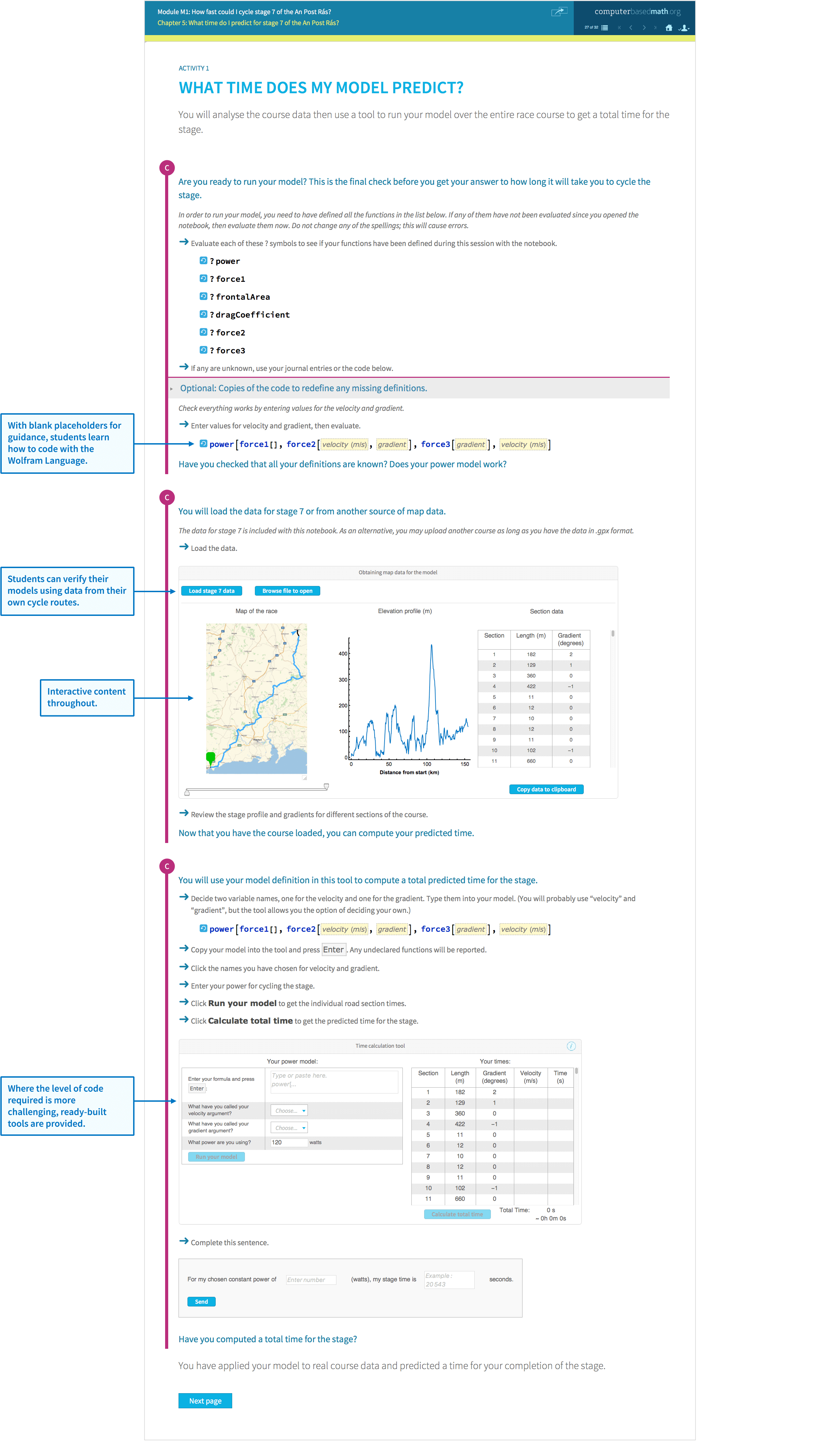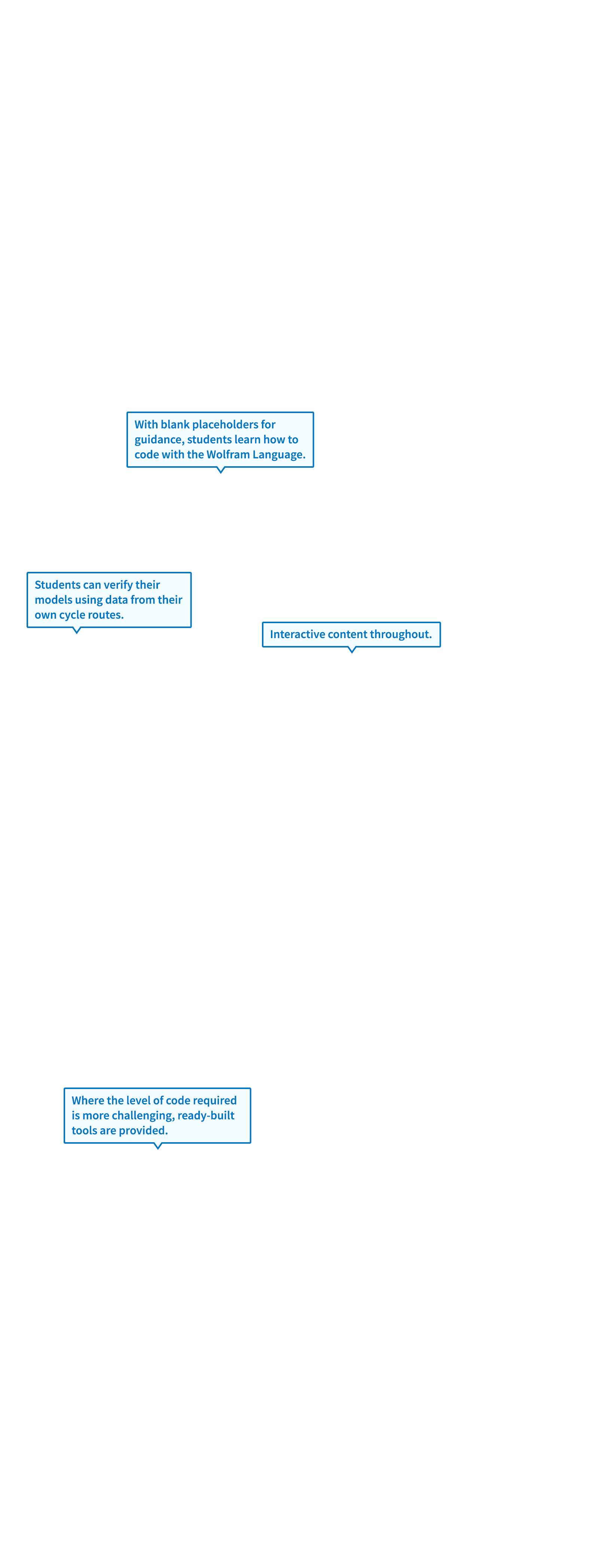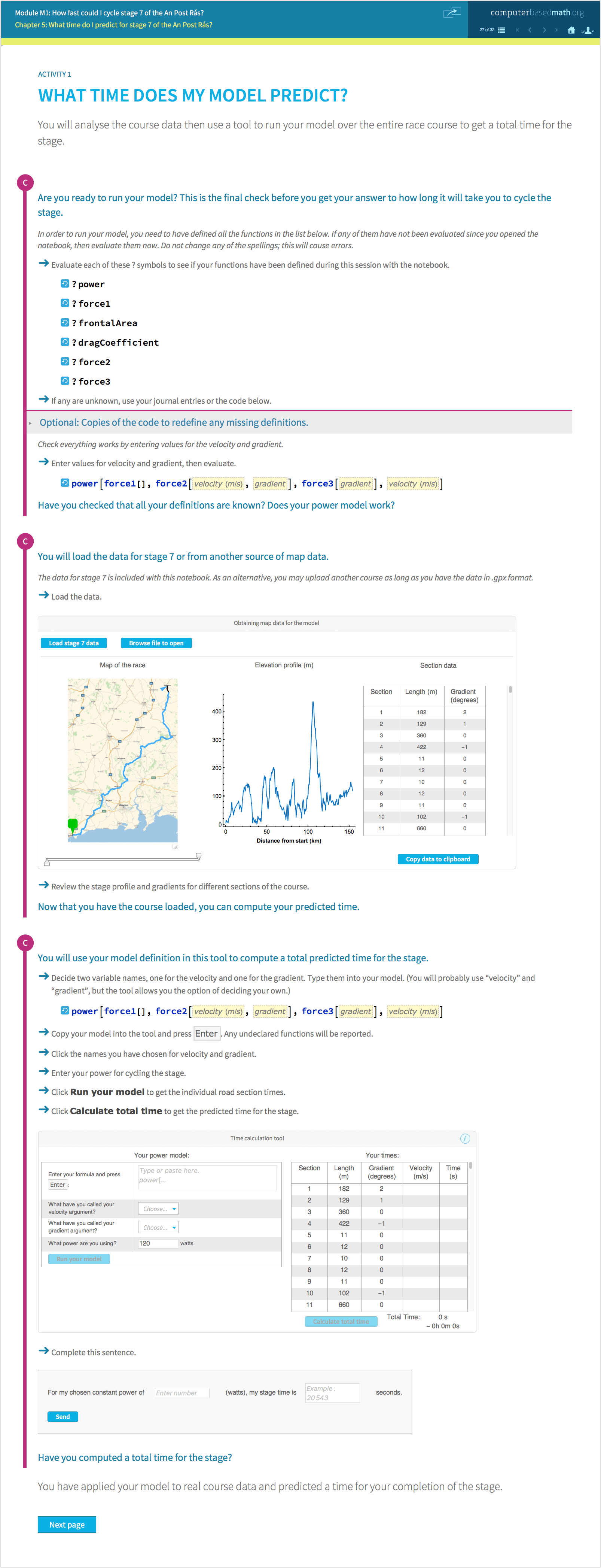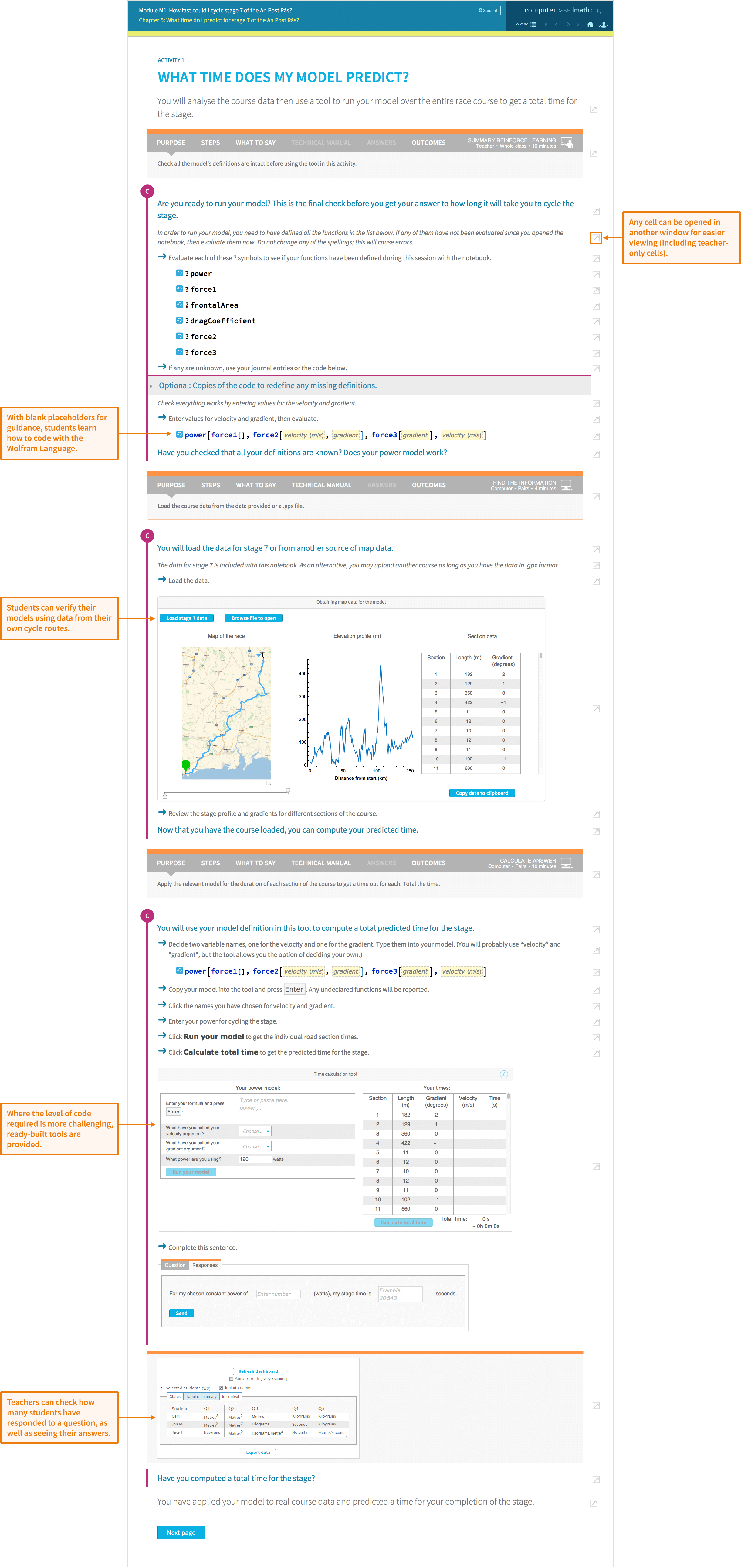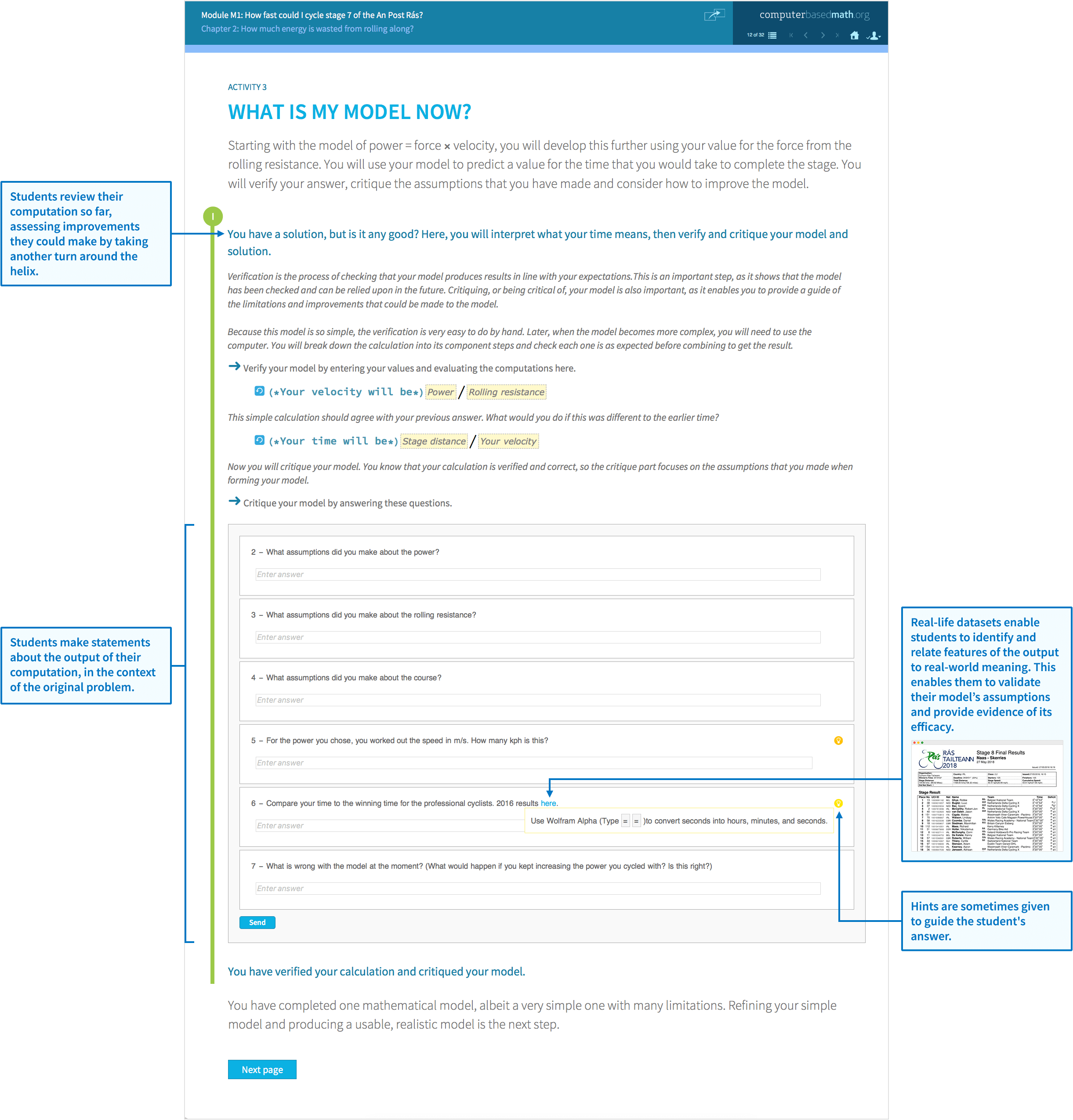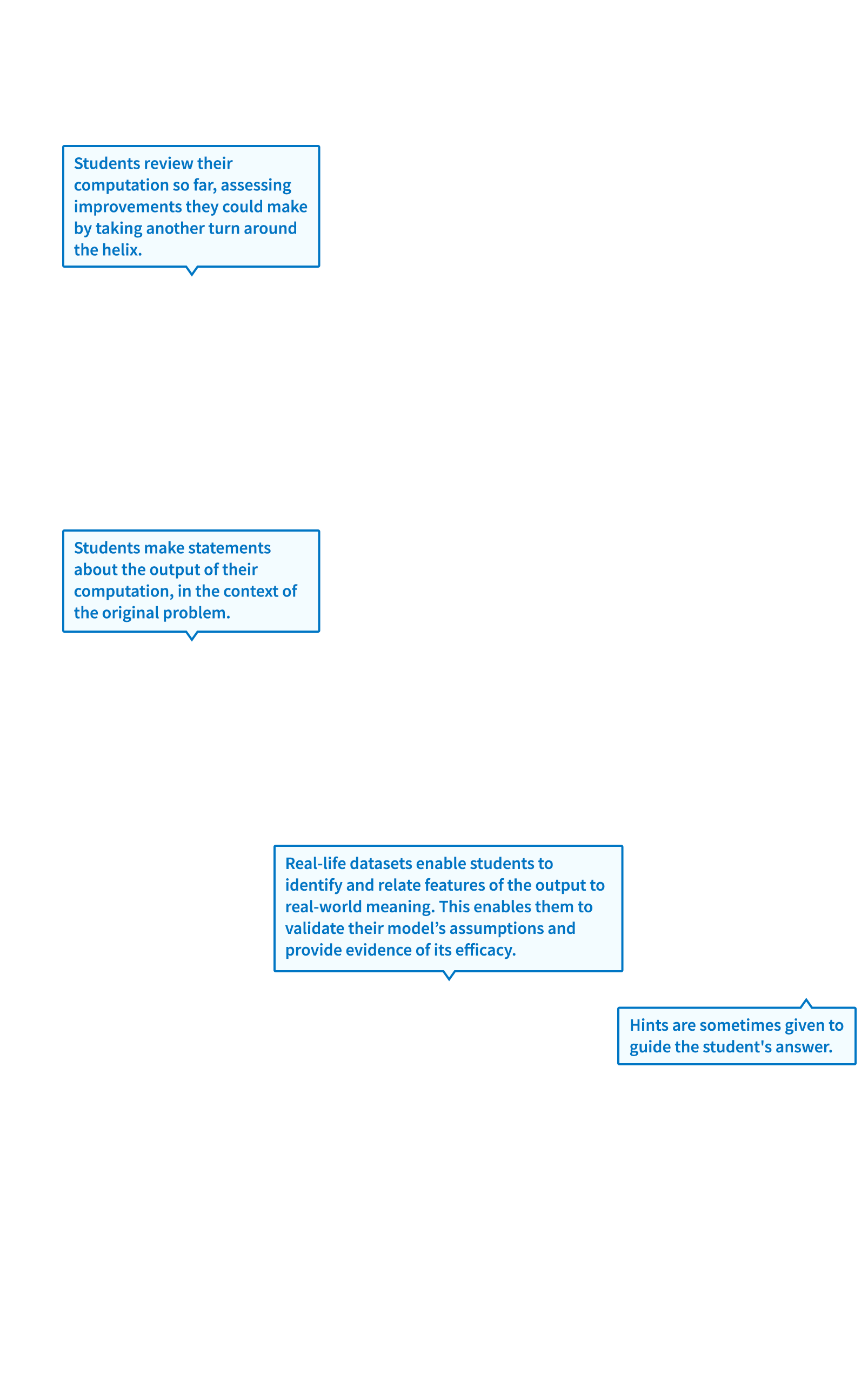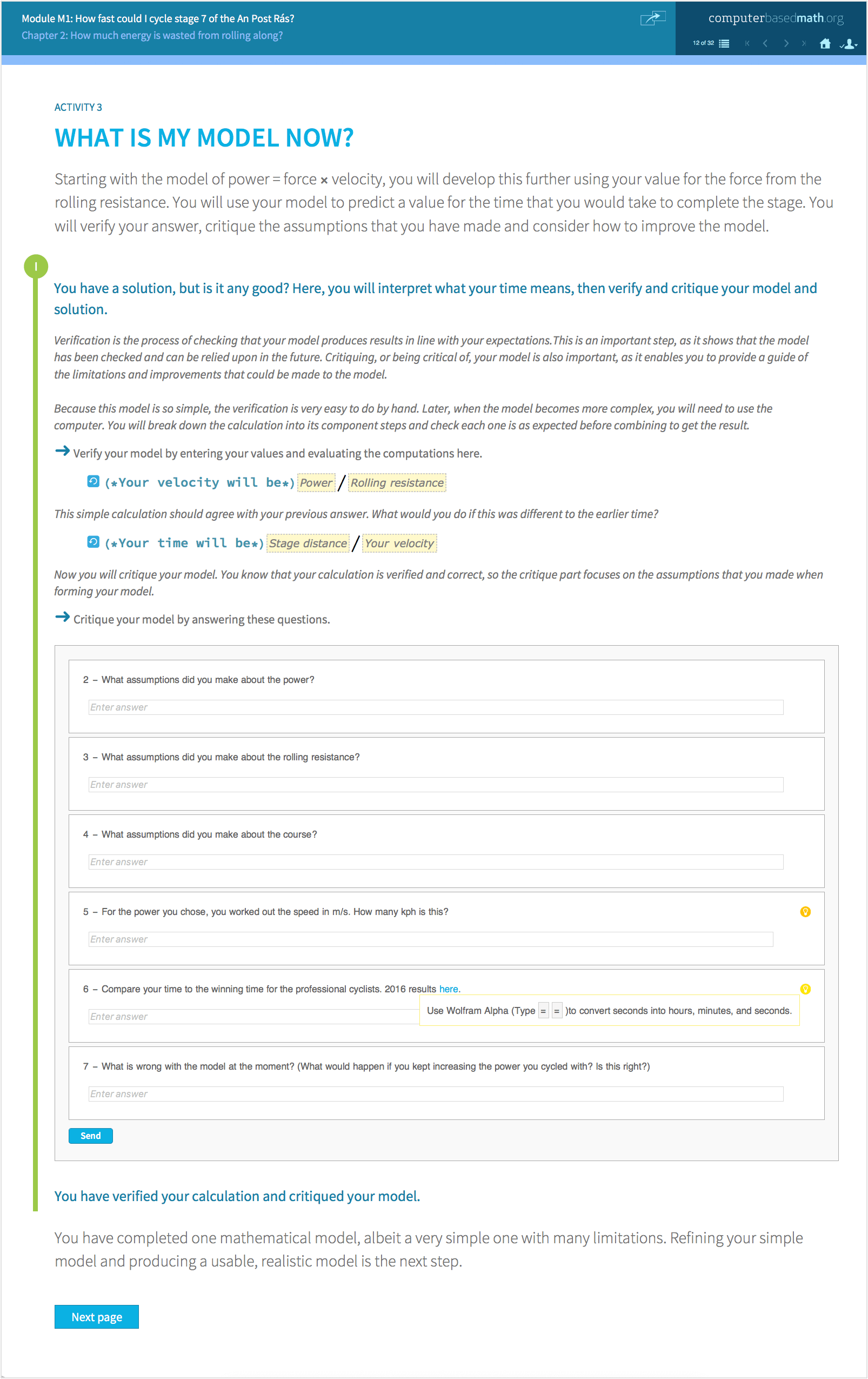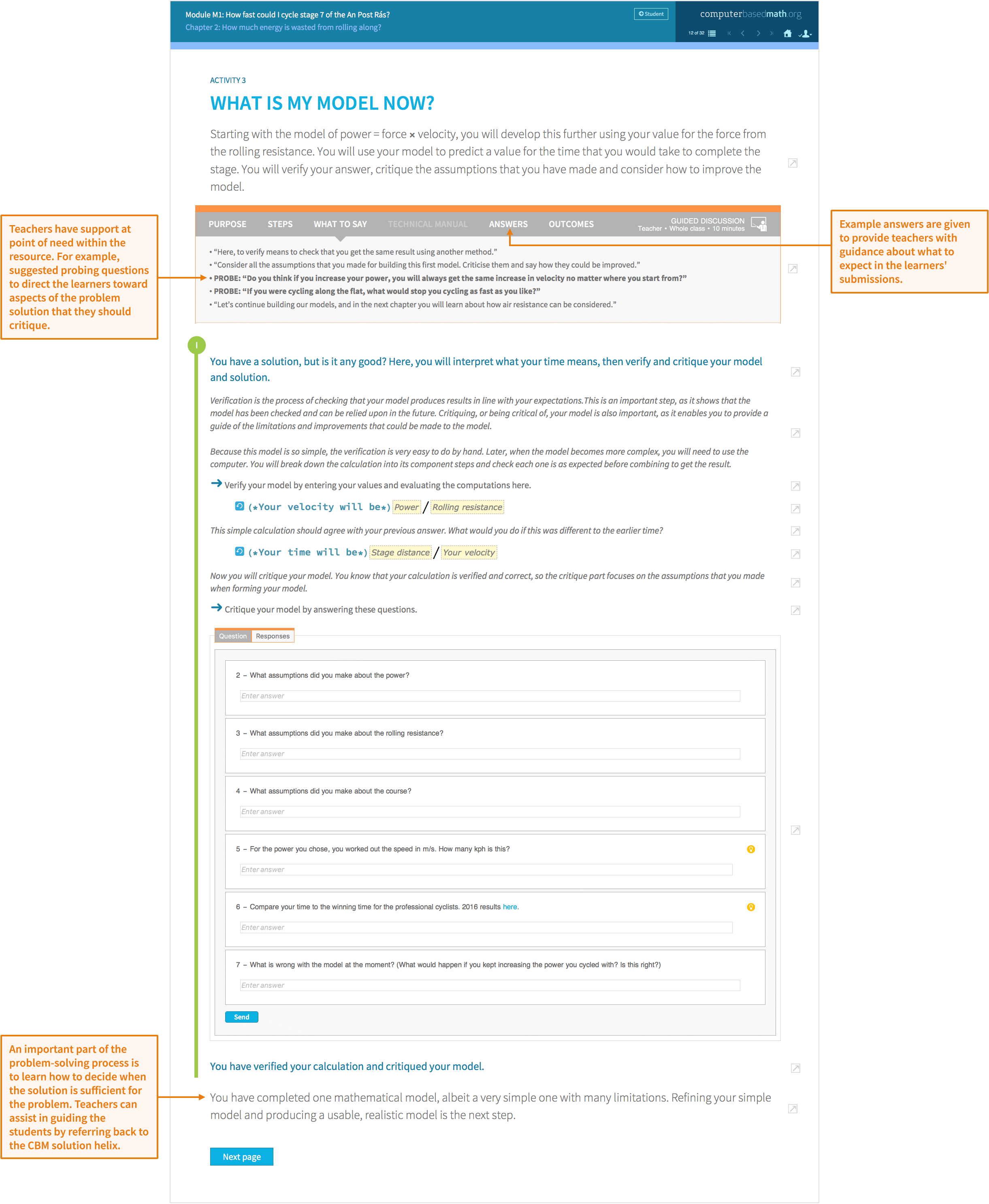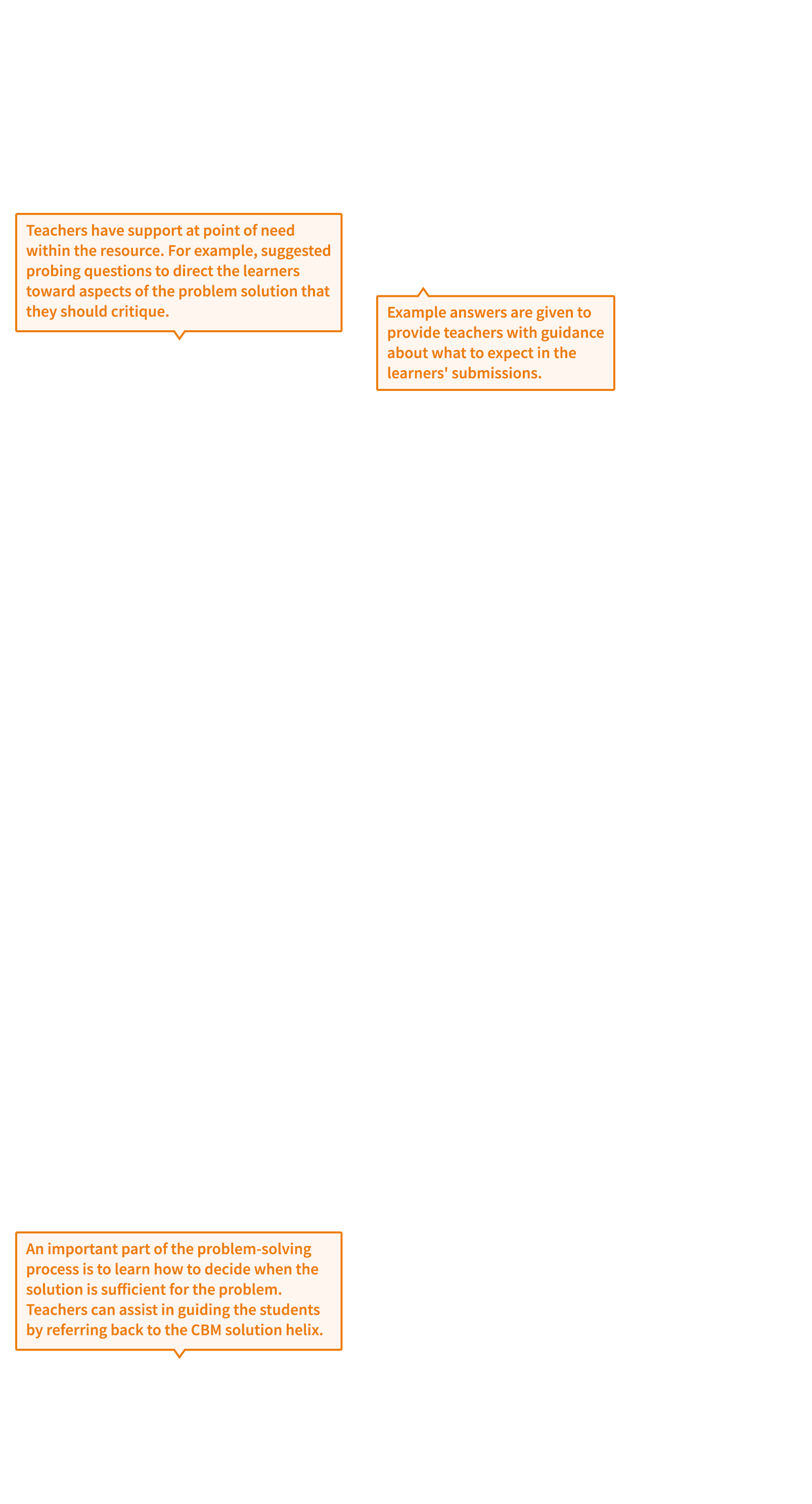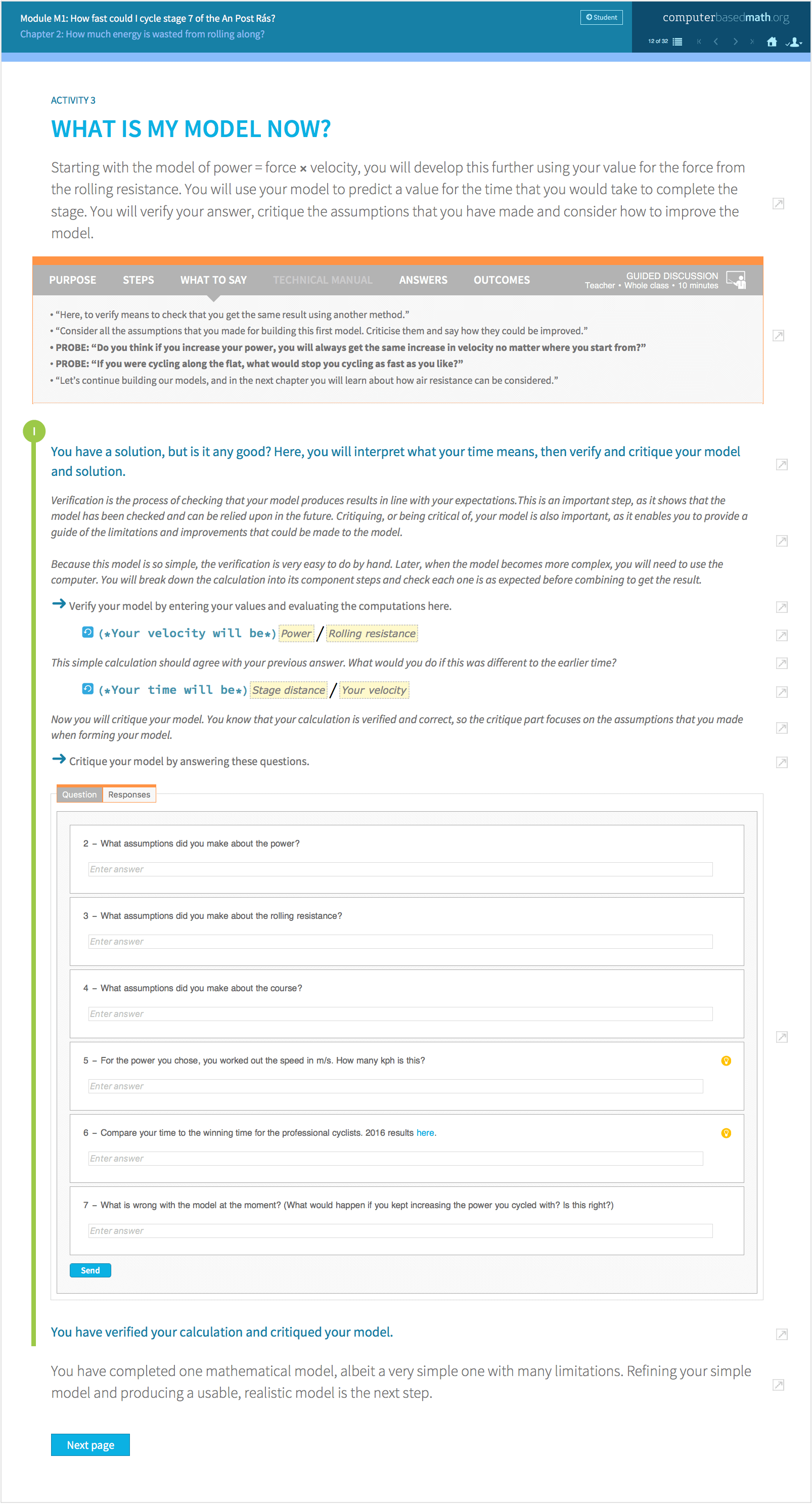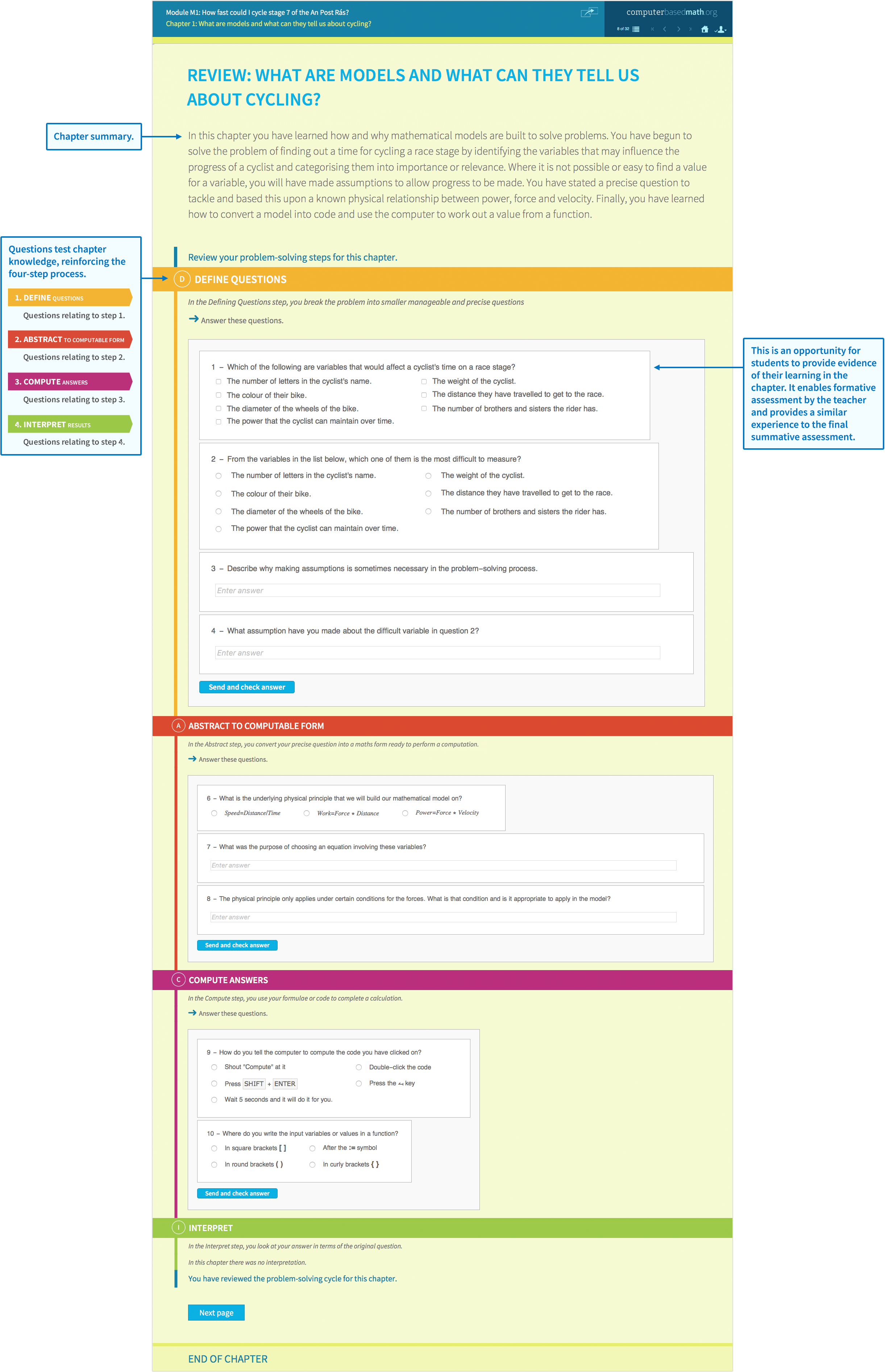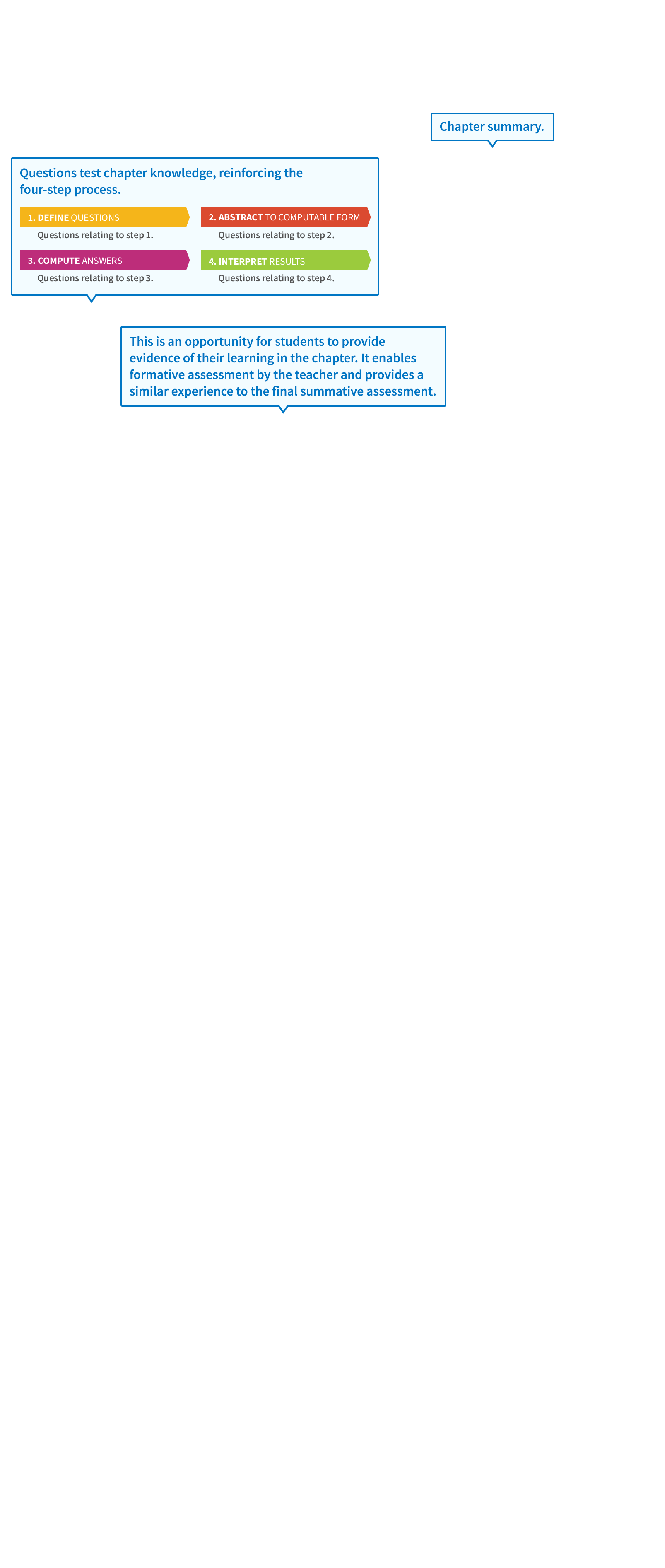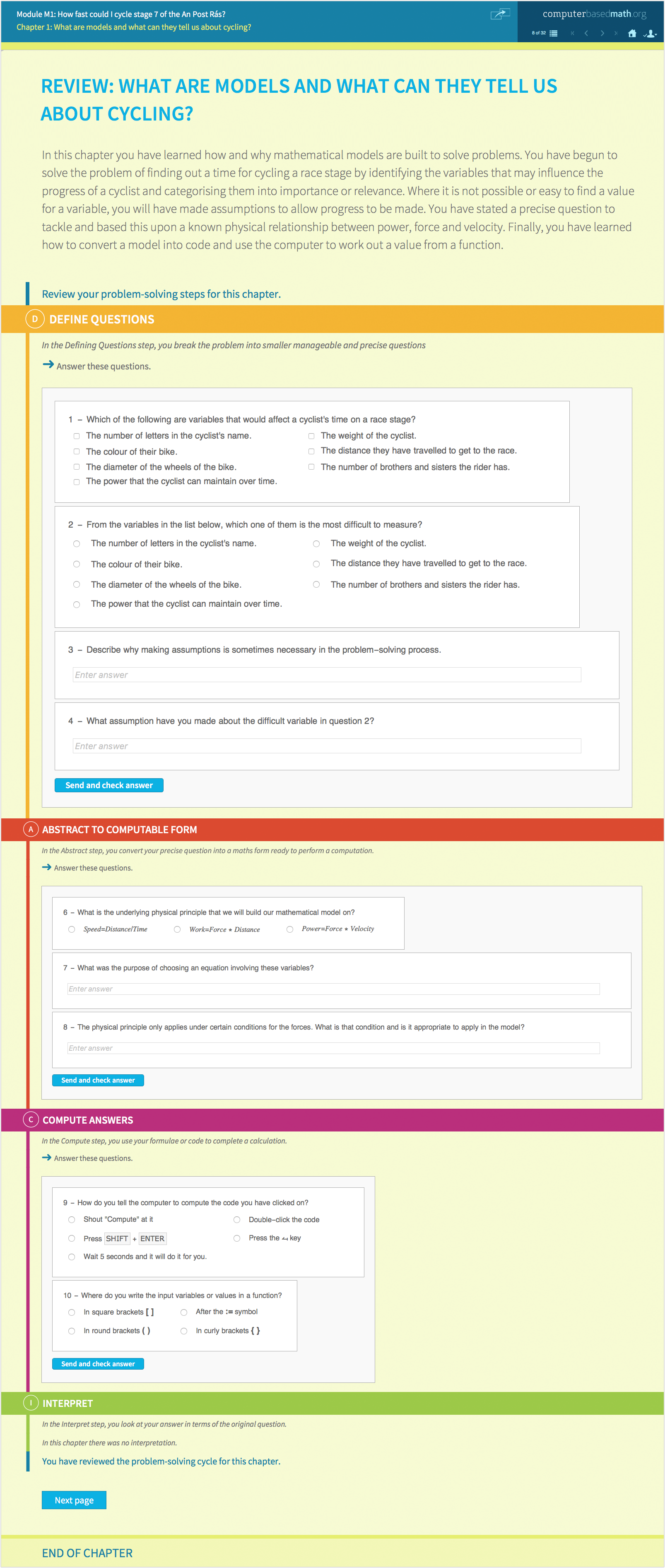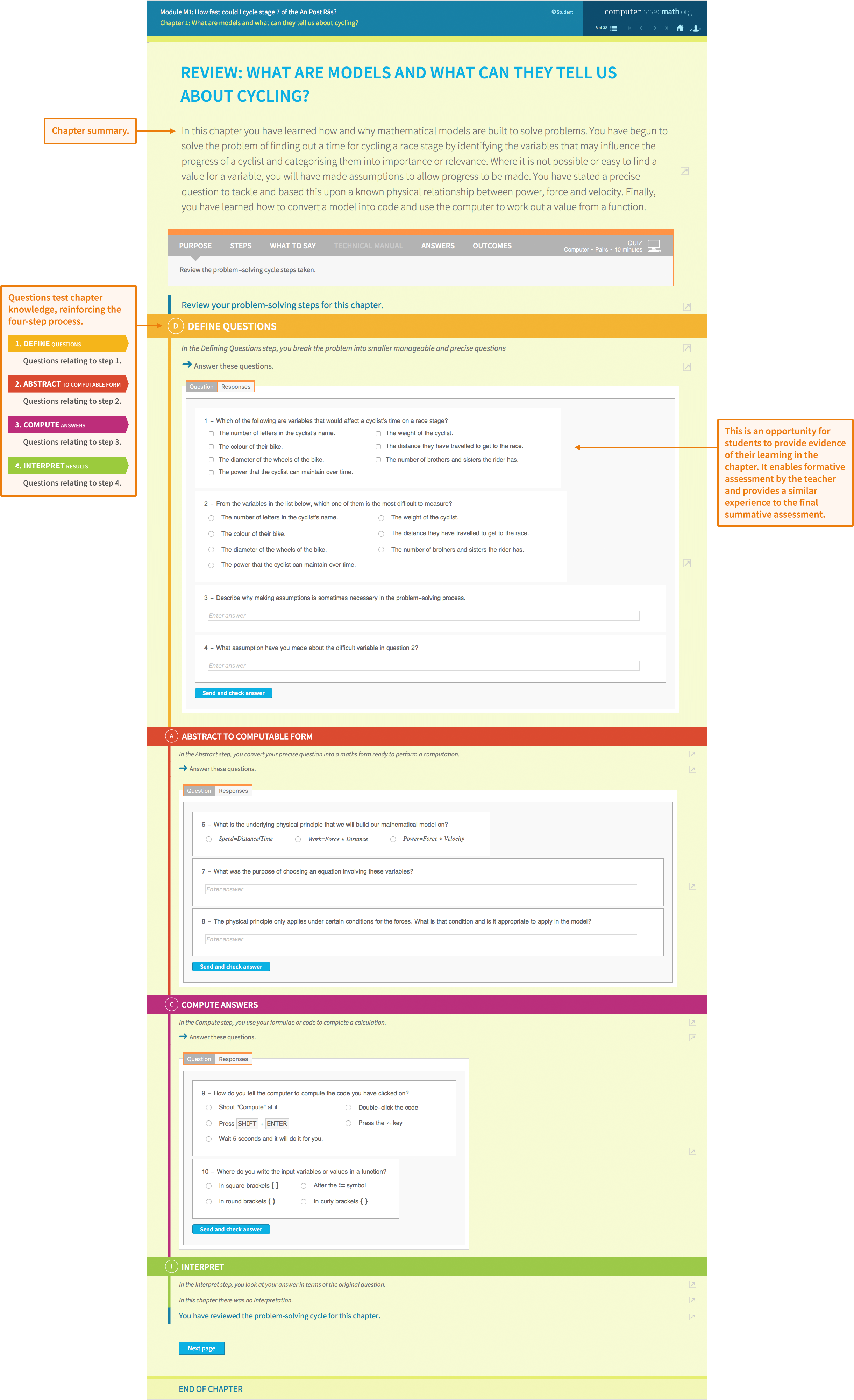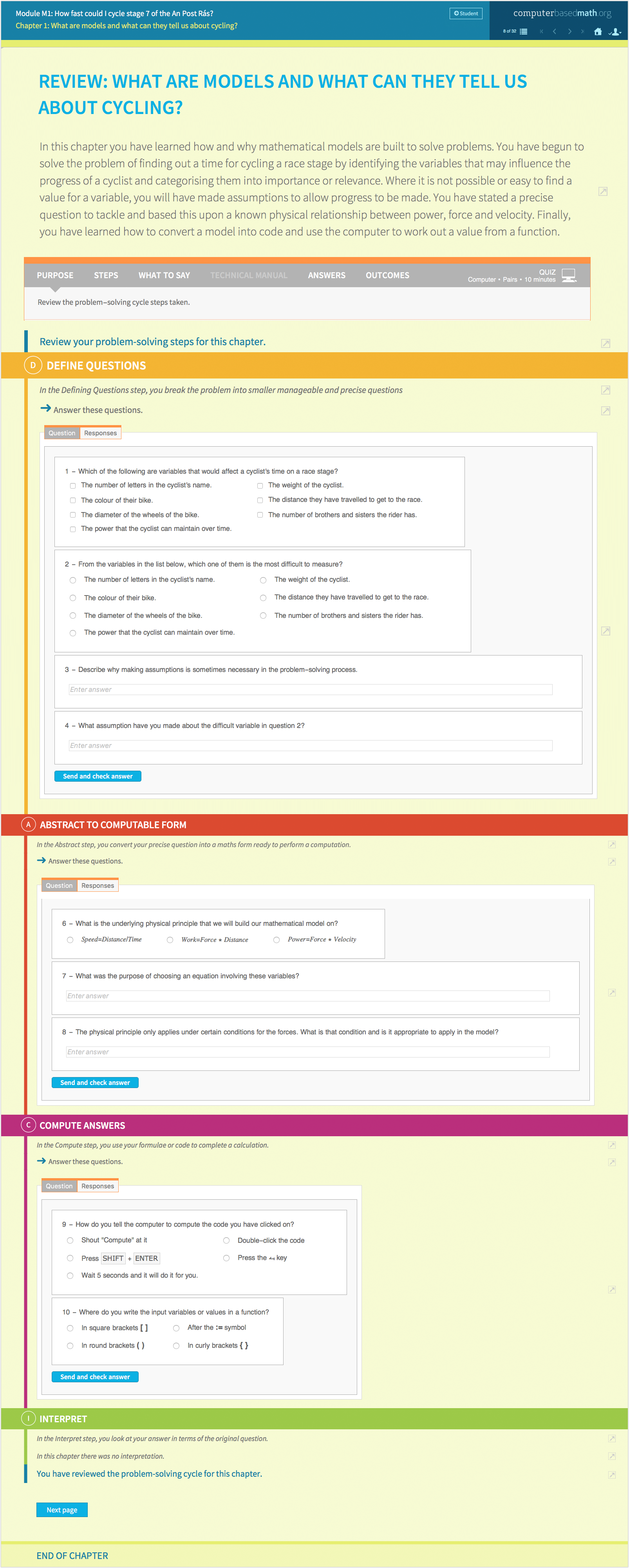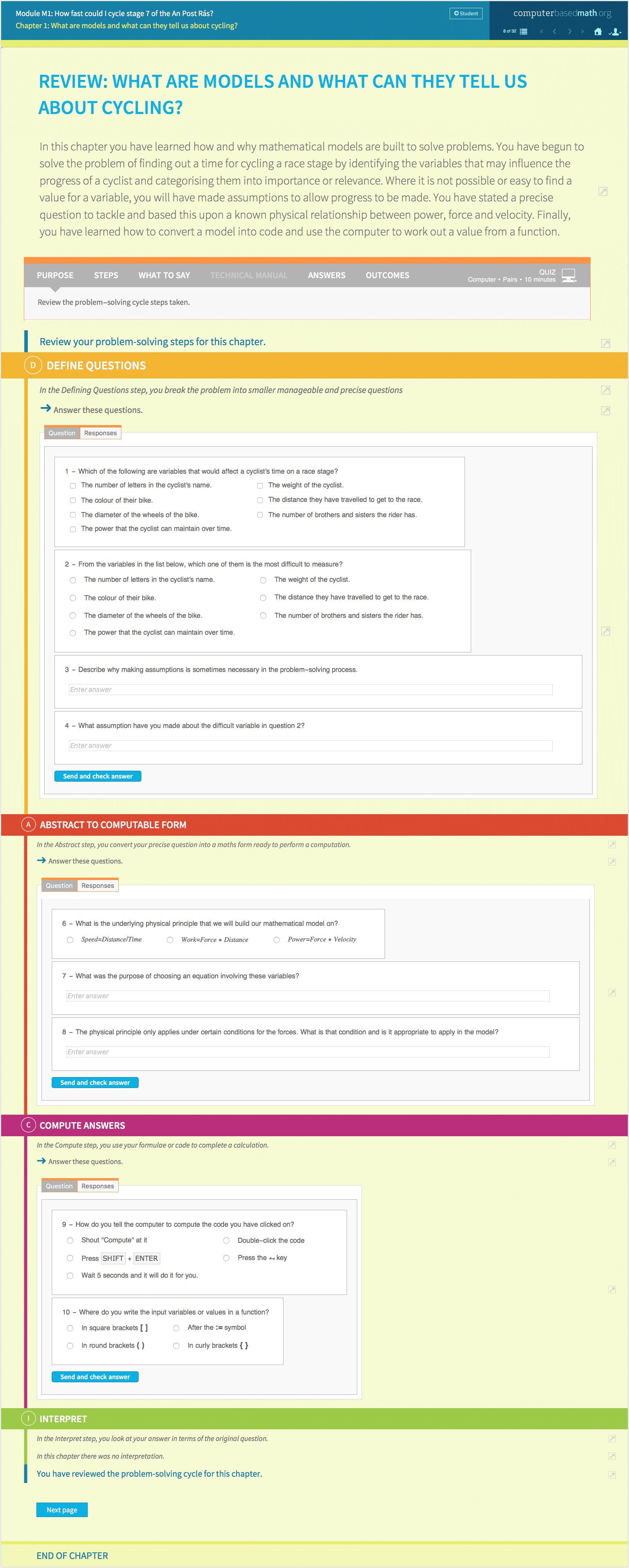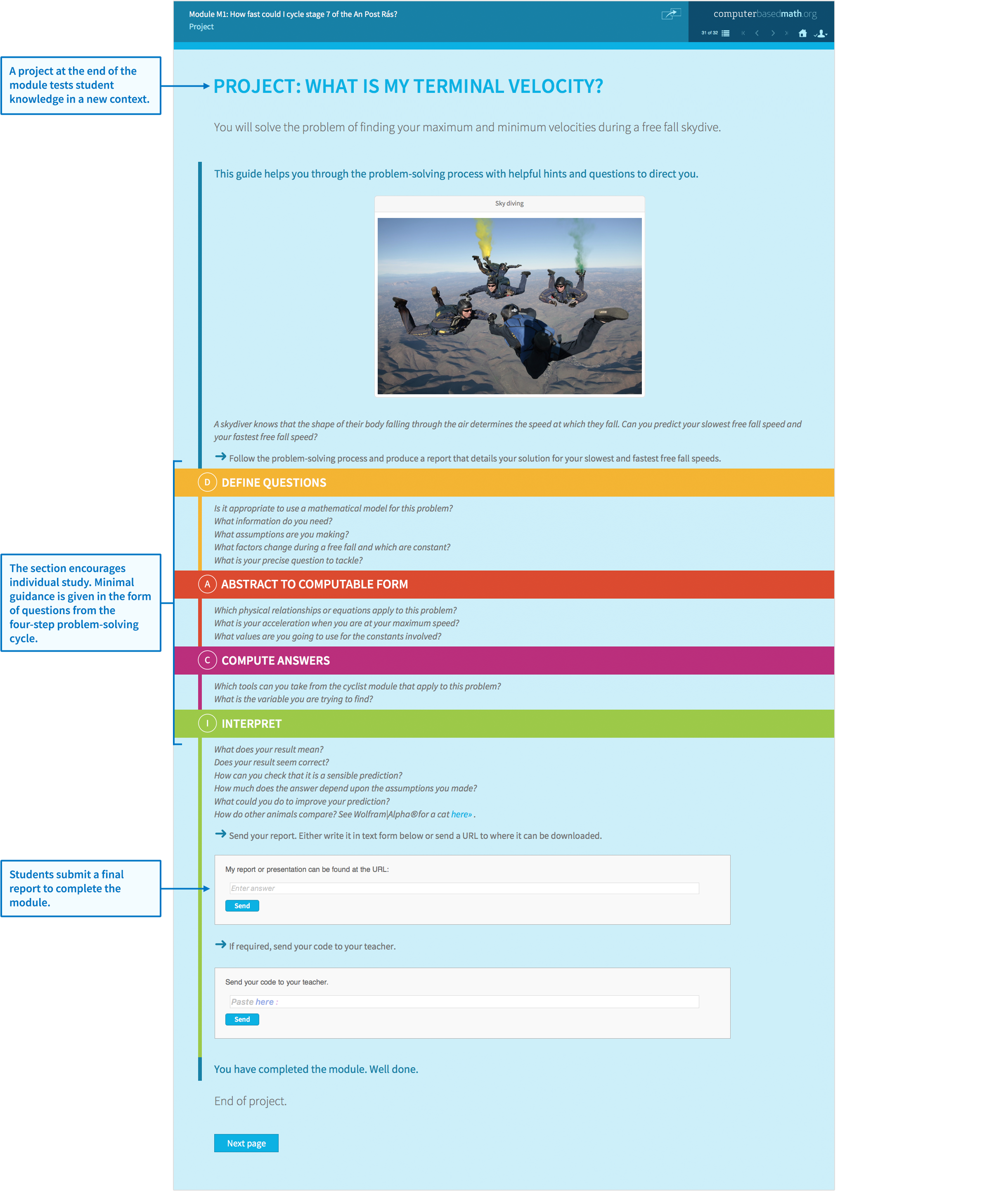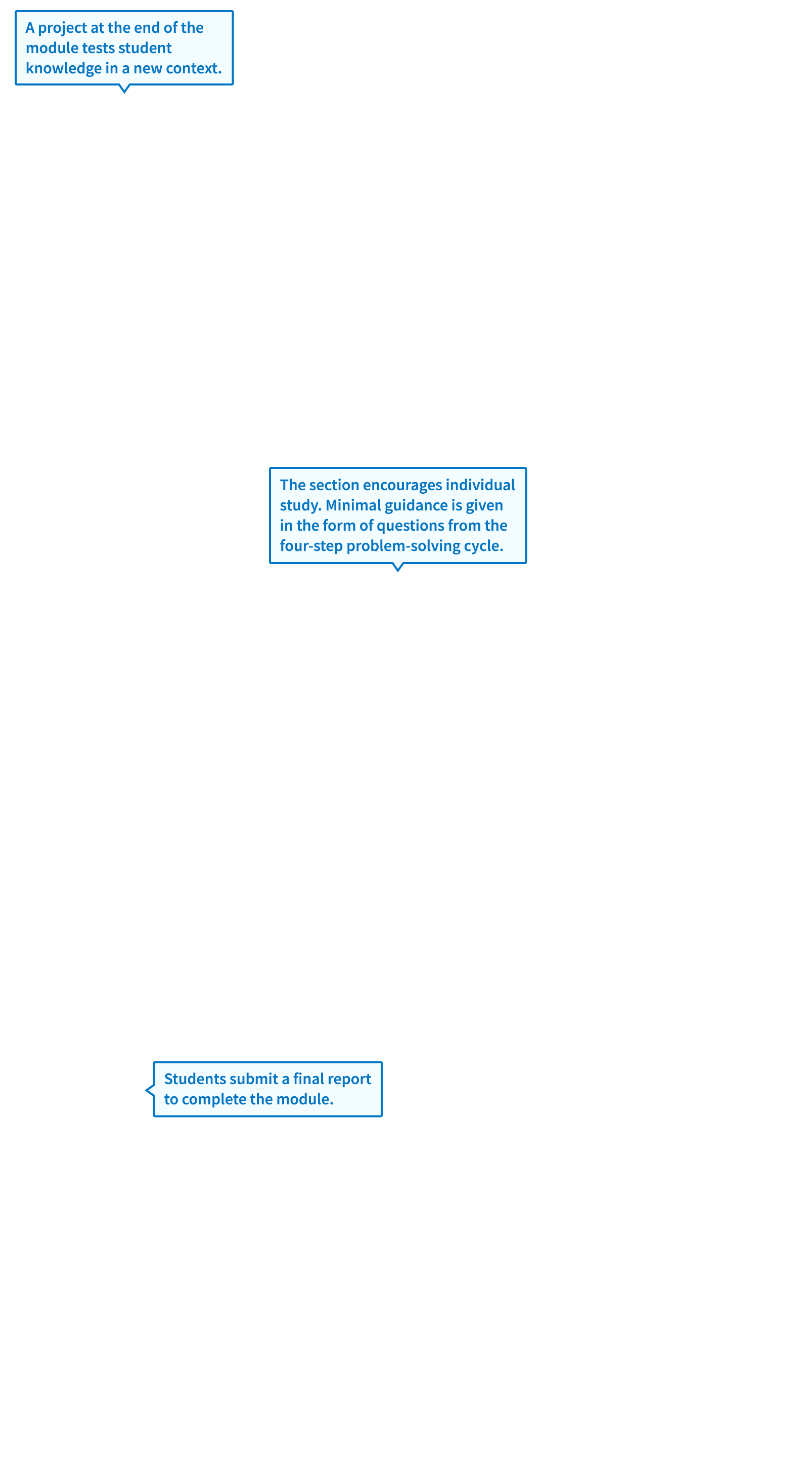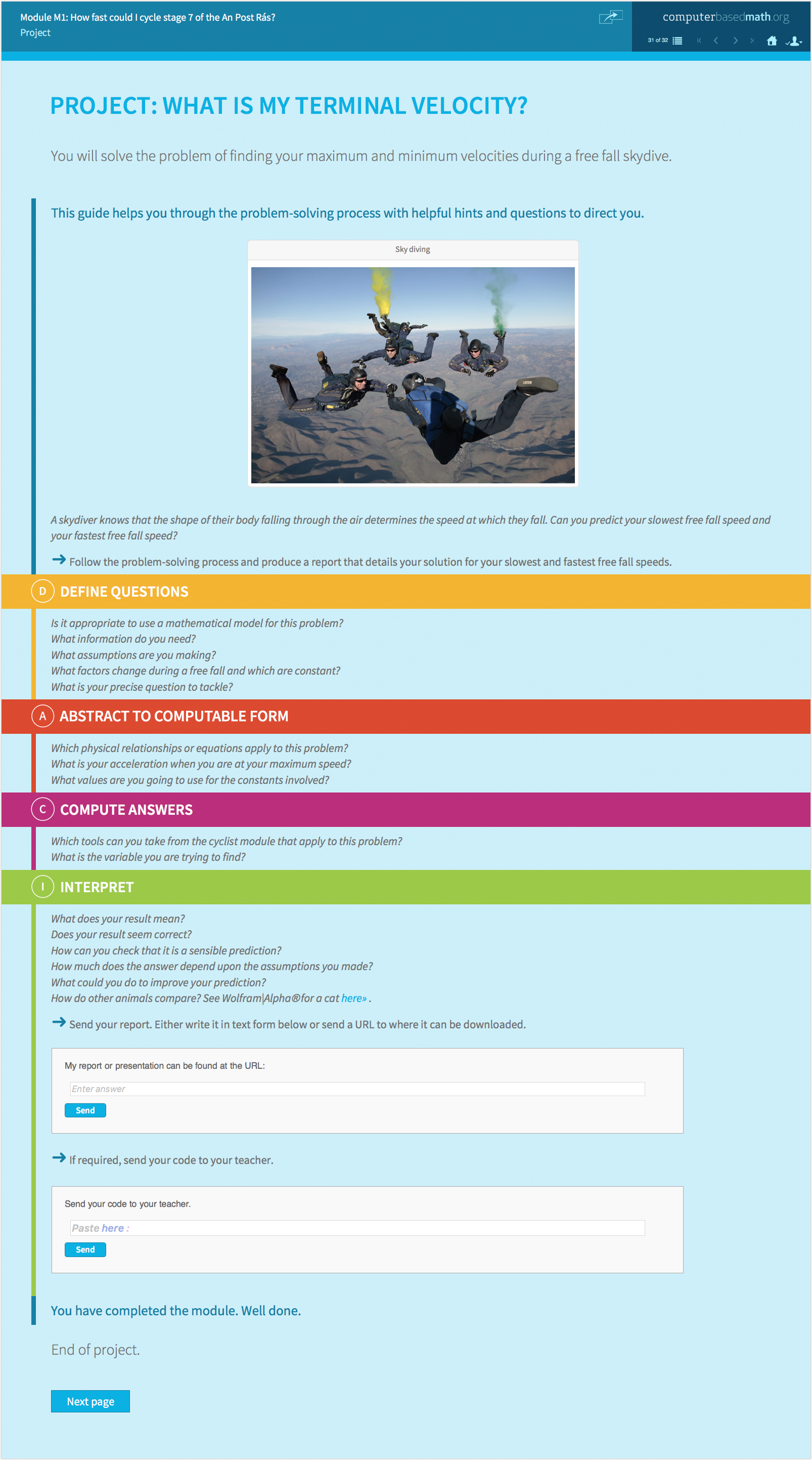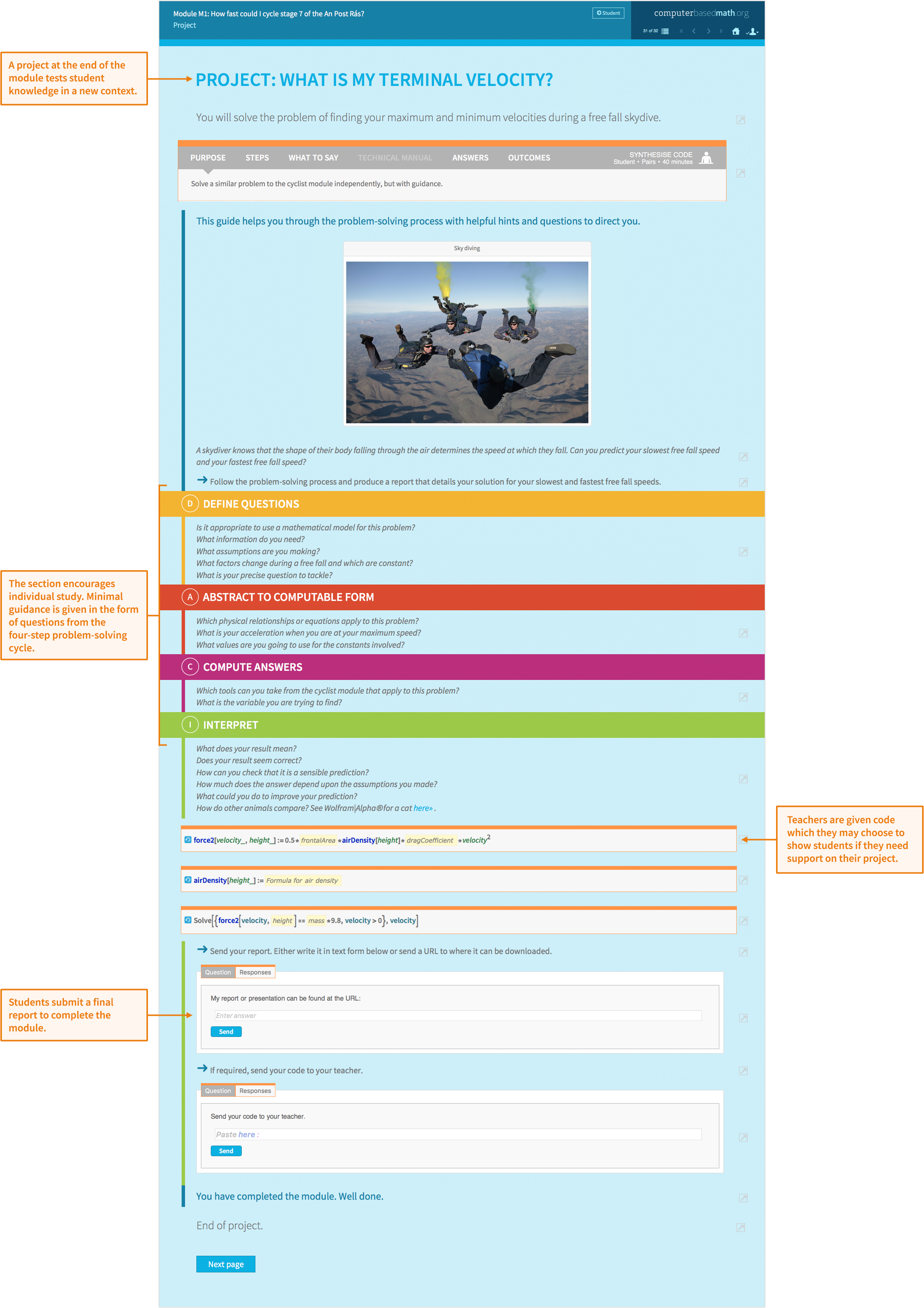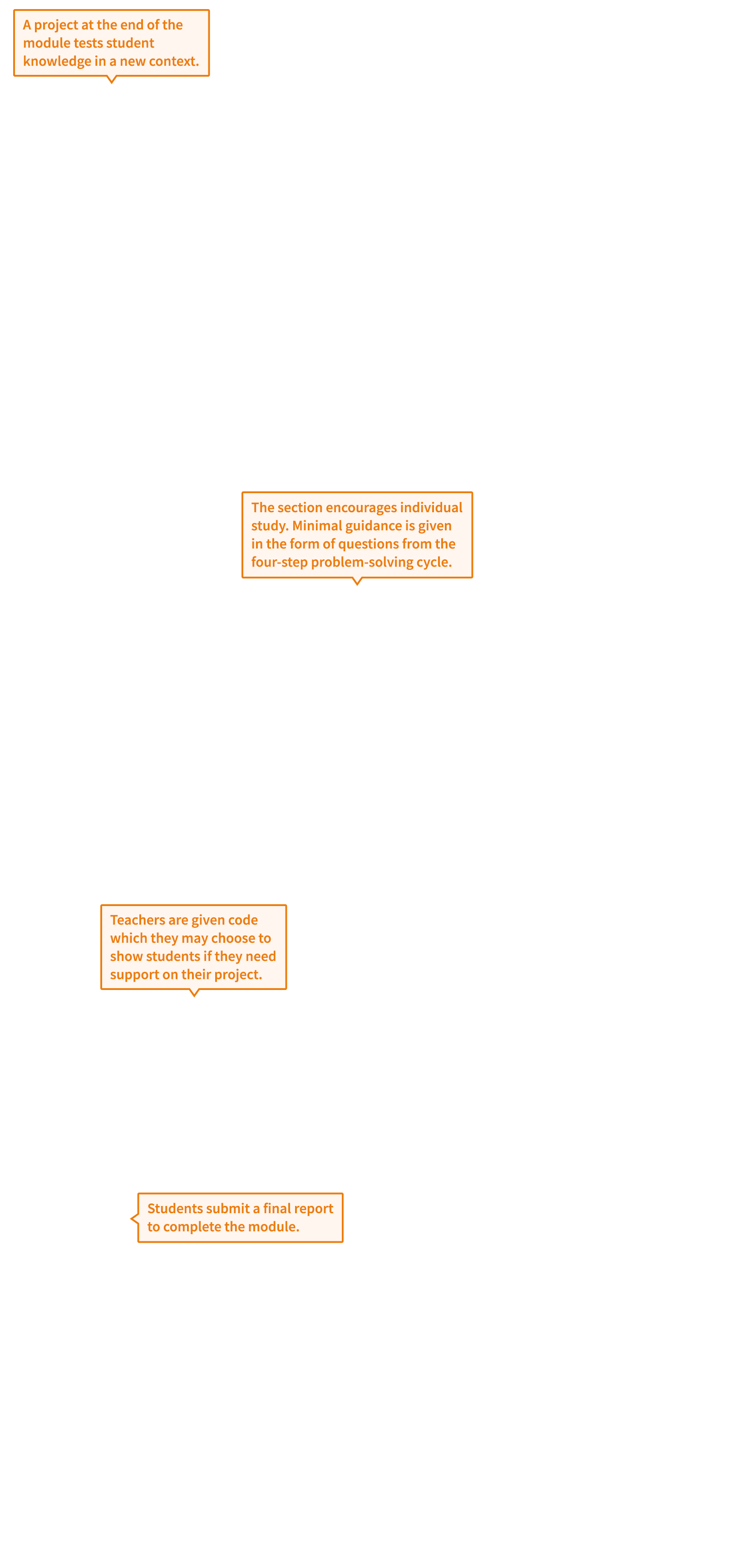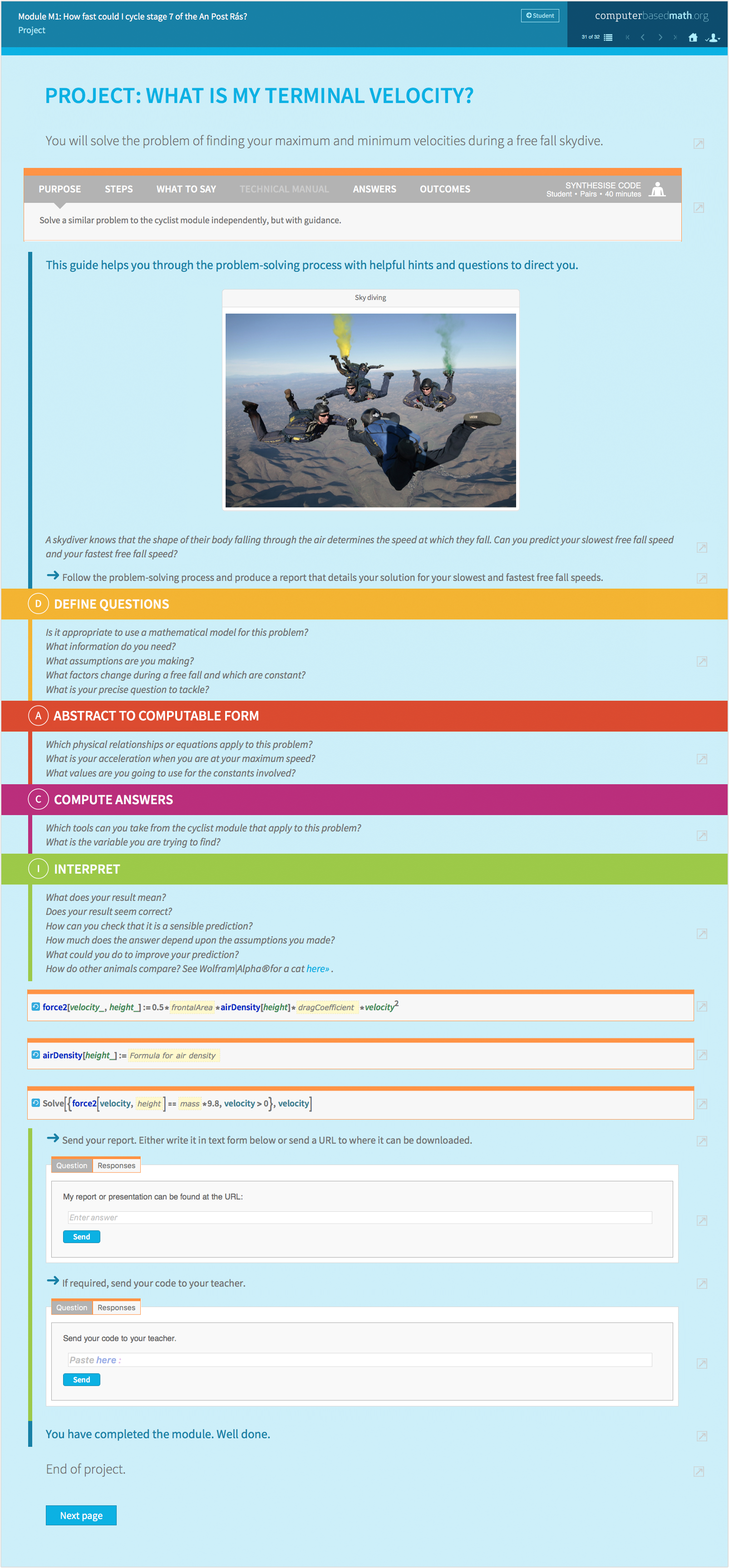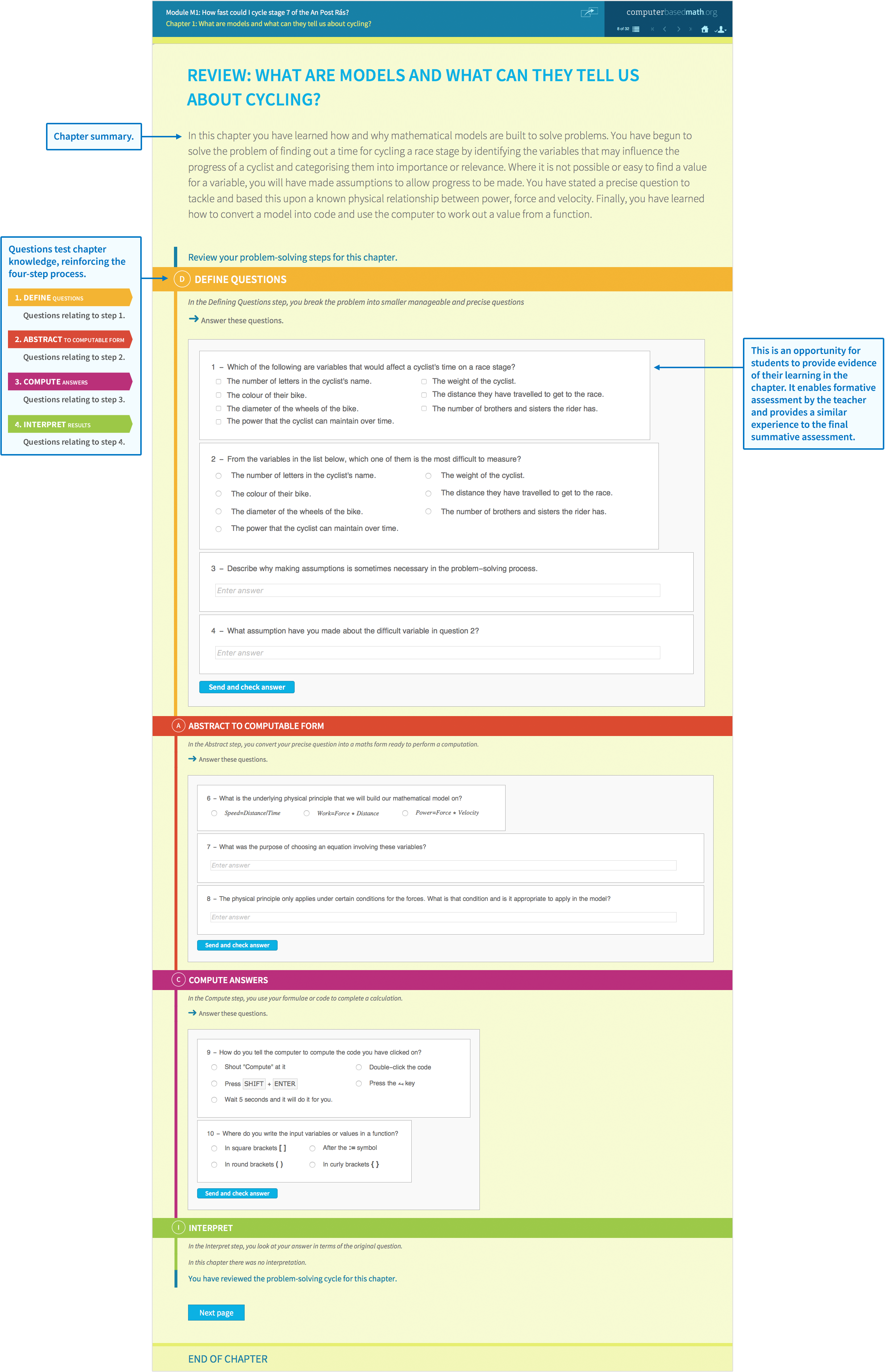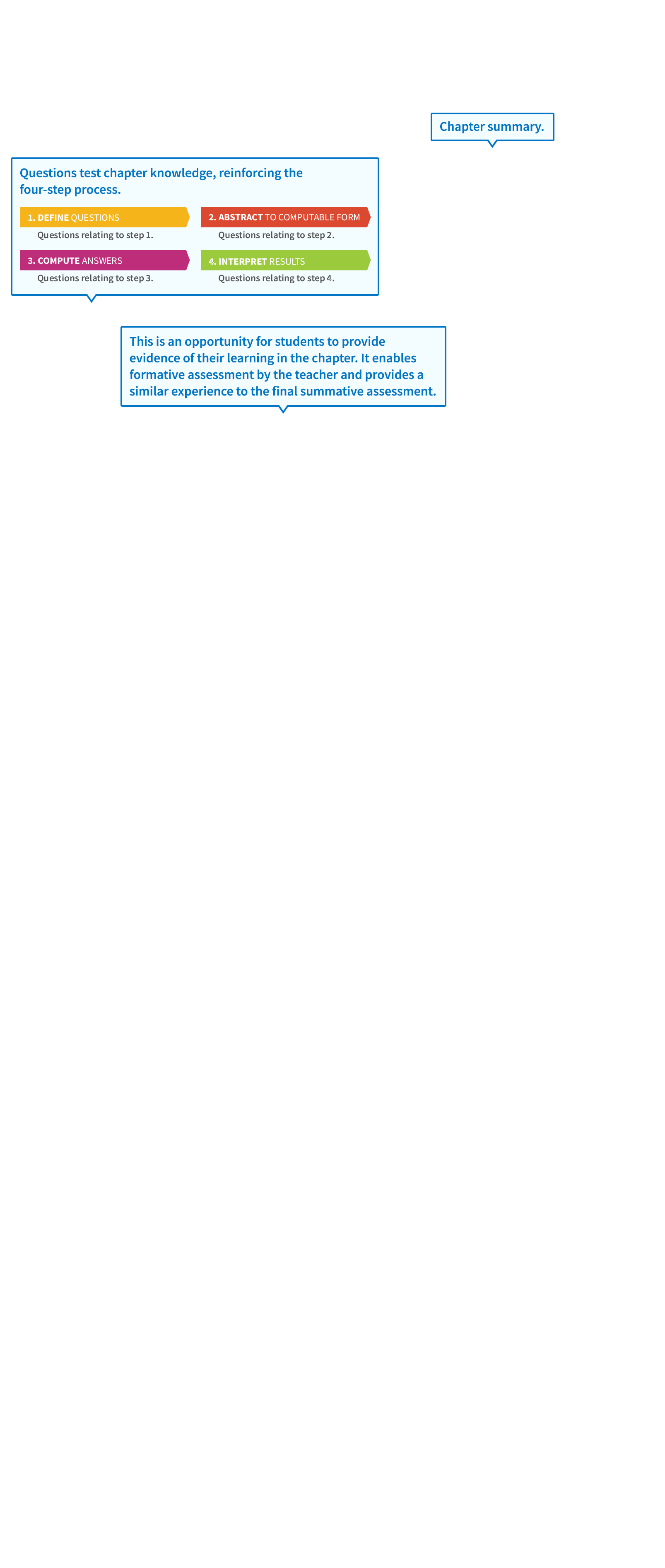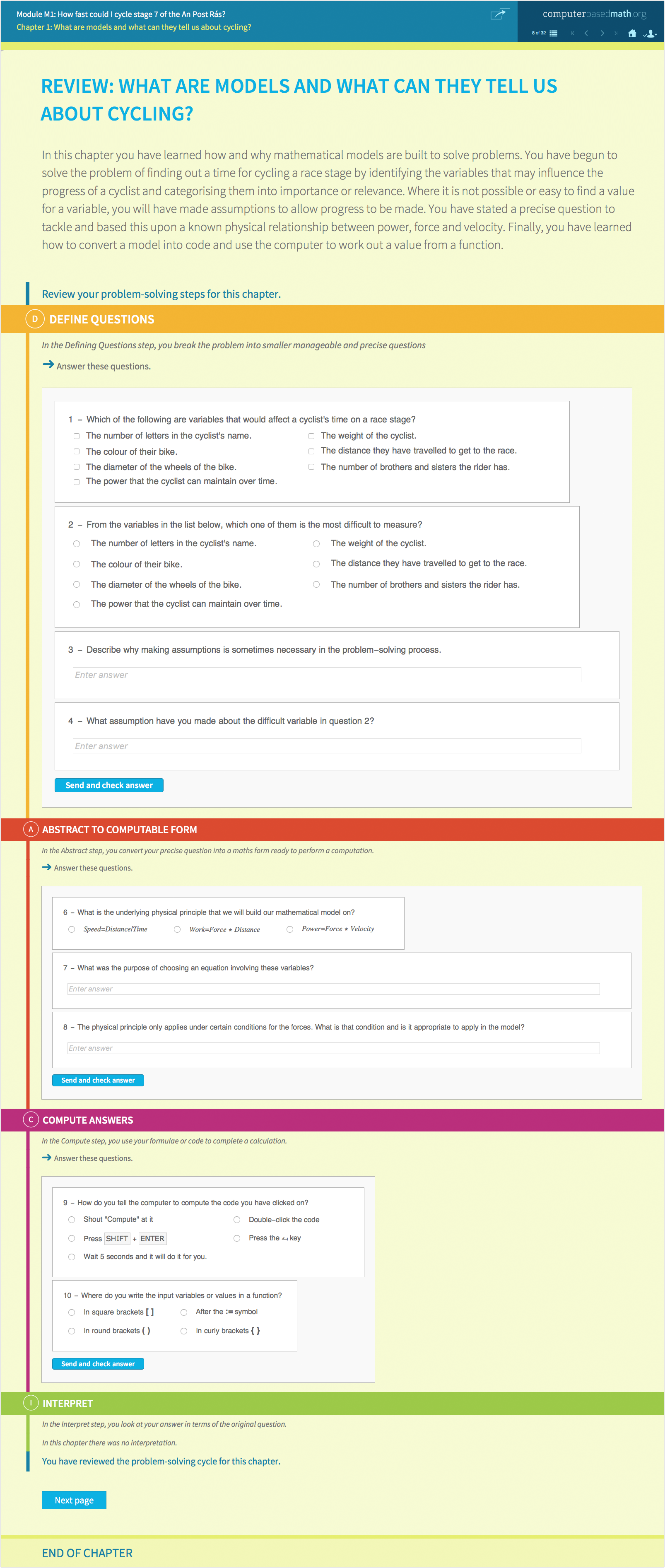Anatomy of the CT Teaching Platform
A fundamentally new curriculum—a curriculum based on the four-step problem-solving approach—requires a different approach to learning. The teaching platform (desktop) delivers the following:
- Problem-based teaching modules for all abilities
- Assessment and class collaboration tools
- A unique computational thinking environment powered by Wolfram technology
- Teacher and student support at point of need
- Open-ended projects and further enrichment opportunities
For a free trial or purchasing options, please contact us.
Module Summary
The learning is delivered within the context of a realistic problem narrative split into chapters and activities, leading the learner through the problem-solving process with helpful checkpoints and opportunities to discuss progress at regular intervals.
Chapter Introduction
Learners experience in-context, real-life, messy problems and learn the skills required to make progress by constructing a precise question to tackle.
Activity (Define)
Rather than being given narrow calculation questions to complete by hand, students are given problems to discuss, define, scope and make assumptions around, in preparation for abstraction.
Activity (Abstract)
As learners use the computer to do the calculating, previously out-of-reach concepts (due to their calculation complexity) become accessible at an earlier stage. Learners have a full set of cutting-edge tools available to them and are guided toward stable choices in the narrative, often through the use of primers.
Activity (Compute)
Learners have access to industry-standard computation tools and are not restricted to the templates given in the materials—the learner can enter and run Wolfram Language code at any point within the resource.
Activity (Interpret)
Learners validate their solutions by comparing to real results and critique their solution, allowing them to reflect upon their approach. Most importantly, they learn to iterate and refine their solution using the CBM solution helix as a guide.
Chapter Review
The reflection on learning is structured around the fundamental four-step process, rather than the progressive steps of a calculation.
Project
Consolidation of learning is done within a new context so that learners experience how to adapt their newfound knowledge to new contexts. There are no new concepts or tools that are required in a project.
Primer
Primers are out-of-context descriptions of concepts that are useful within a module, similar to current curricular resources. Different problem-solving narratives may link to the same primer as necessary.
